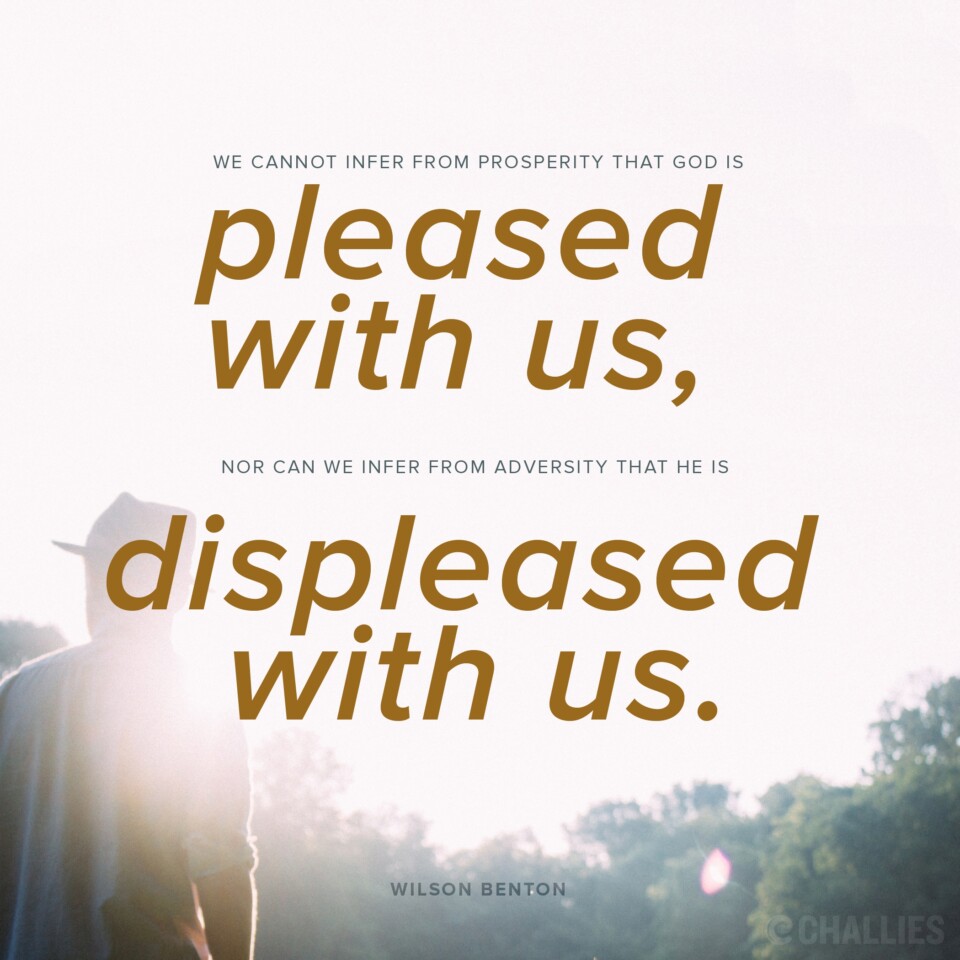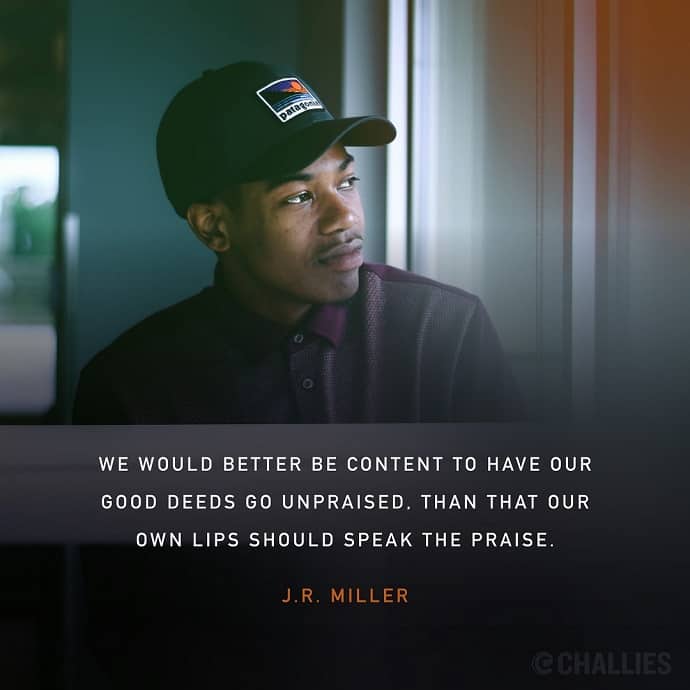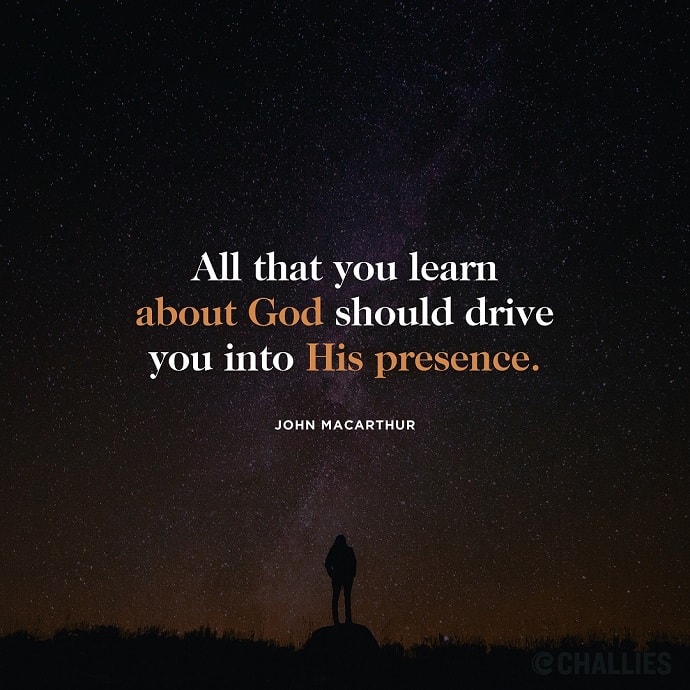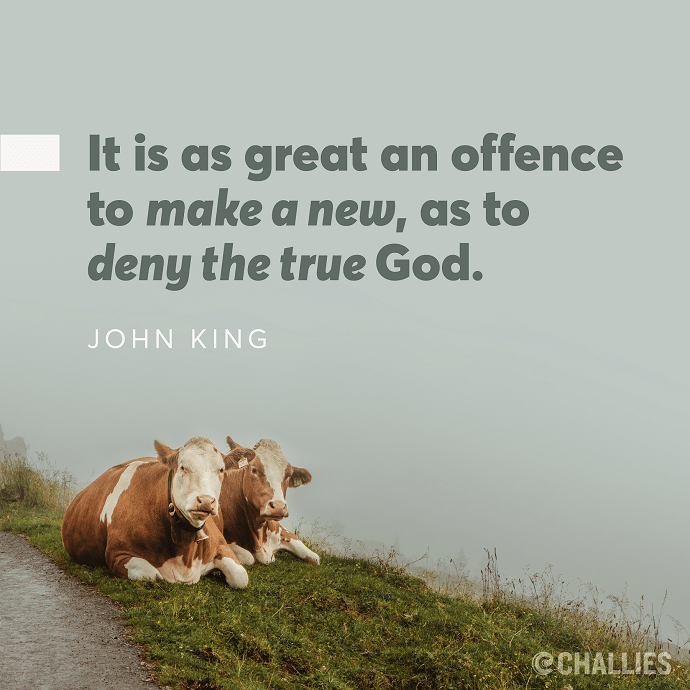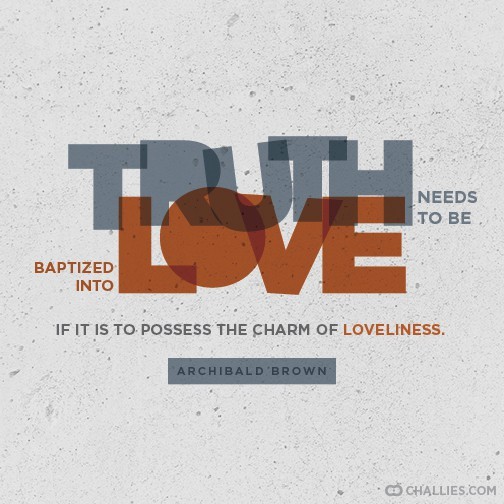 A La Carte: Where abortion policies stand now / Misconceptions about sports betting / You shall surely die / Does evolution care about you? / Ministering to orphans in Africa / Book and Kindle deals / and more.]]>
A La Carte: Where abortion policies stand now / Misconceptions about sports betting / You shall surely die / Does evolution care about you? / Ministering to orphans in Africa / Book and Kindle deals / and more.]]>
If you are looking for something new and interesting to read, Westminster Books has discounted a collection of new and notable academic titles. There’s enough there to keep you going for a while!
Today’s Kindle deals include Blair Linne’s moving Finding My Father along with a book on cultivating a quiet heart and several others.
Where Abortion Policies Stand Now
Joe Carter explains where abortion policies in the US stand now on the far side of Election Day.
5 Misconceptions about Sports Betting
Growing Fathers addresses some common misconceptions about sports betting. “Professional sports generate huge profits, but sports betting takes it to a whole new level, and it’s growing at a remarkably rapid pace with wide acceptance. What are some of the most common misconceptions about sports betting and why is this important for Christian dads to consider?”
Ministering to Orphans in Africa: Understanding the Crisis and Responding with Compassion
This is a helpful article on ministering to orphans in Africa—a ministry that is near and dear to many people I know. “The orphan crisis in Africa is a profound humanitarian challenge that demands our attention and action. In Zambia alone, 27% of children are orphaned, with 75% of the population under the age of 20 and 49% under the age of 15. This demographic reality underscores the urgency of addressing the needs of orphaned children across the continent.”
‘You Shall Surely Die’? Unmasking the Many Faces of Death
Here’s the abstract of a long and interesting article. “God told Adam that he would ‘surely die’ if he ate from the forbidden tree. He and Eve did not immediately return to the dust upon eating the fruit, but they did experience death in other forms. Their immediate shame and alienation from God, along with other descriptions of the curse beyond Genesis 3, reveal that death means more than the cessation of physical life. Therefore, the new and resurrected life in Christ holds a promise far greater than mere physical life.”
Design: Does Evolution Care about You?
“It constantly amazes me to hear those committed to an evolutionary worldview talking about design. They can’t help themselves. Everything is so intricately designed.” This always amazes me as well.
The School of Faith – When God’s Ways Are a Mystery
“What about those seasons when God remains silent to prayers? What about that time when you prayed for protection and the very thing you feared and prayed against became a reality? What about that moment when you took a step of faith and followed God’s difficult leading, only to be met with more difficulty and nothing but confusion. Where is God’s love and goodness in those moments?”
Flashback: On Hoarding Wealth and Fostering Gifts
God has given you spiritual gifts he means for you to use in love and service to other believers. Have you identified the ways in which he may have gifted you?
]]> This sponsored post was provided by Burke Care, and written by Jen Arend, which invites you to schedule care today with a certified biblical counselor. As the music swells, she begins her descent down the aisle. All eyes are on her, especially her groom. She is radiant, majestic, and filled with beauty. Her gaze meets his tear-filled eyes. The two express vows before God and witnesses, though it does not take long before they learn that living out those vows becomes a dance of beauty and chaos.[1] How can earthly marriage thrive in the dance? Any discussion of roles in marriage begins with beholding the ultimate Bridegroom, the Lord Jesus Christ. In beholding the true Bridegroom from Genesis to Revelation, marriage is transformed into a beautiful dance, reflecting the relationship of Christ to his church. Beholding the Lord Jesus, and his bride, begins in the “very good” creation of the opening chapters of Genesis. First, this relationship is seen in the Trinity. God the Father, God the Son, and God the Holy Spirit dwell together in perfect unity and mutual love (Matt. 3:16-17; 12:18; Mark 9:7; John 14:31; 17:24). God then gave human expression to this beautiful, Trinitarian relationship by creating Adam and Eve in the garden. What God created was “very good,” a real-time, flesh and blood expression of the deep unity that exists in the Godhead, an earthly picture of Christ and his church. The man and the woman walked with God in perfection and experienced the blessing of an unstained unity and love for…]]>
This sponsored post was provided by Burke Care, and written by Jen Arend, which invites you to schedule care today with a certified biblical counselor. As the music swells, she begins her descent down the aisle. All eyes are on her, especially her groom. She is radiant, majestic, and filled with beauty. Her gaze meets his tear-filled eyes. The two express vows before God and witnesses, though it does not take long before they learn that living out those vows becomes a dance of beauty and chaos.[1] How can earthly marriage thrive in the dance? Any discussion of roles in marriage begins with beholding the ultimate Bridegroom, the Lord Jesus Christ. In beholding the true Bridegroom from Genesis to Revelation, marriage is transformed into a beautiful dance, reflecting the relationship of Christ to his church. Beholding the Lord Jesus, and his bride, begins in the “very good” creation of the opening chapters of Genesis. First, this relationship is seen in the Trinity. God the Father, God the Son, and God the Holy Spirit dwell together in perfect unity and mutual love (Matt. 3:16-17; 12:18; Mark 9:7; John 14:31; 17:24). God then gave human expression to this beautiful, Trinitarian relationship by creating Adam and Eve in the garden. What God created was “very good,” a real-time, flesh and blood expression of the deep unity that exists in the Godhead, an earthly picture of Christ and his church. The man and the woman walked with God in perfection and experienced the blessing of an unstained unity and love for…]]>
This sponsored post was provided by Burke Care, and written by Jen Arend, which invites you to schedule care today with a certified biblical counselor.
As the music swells, she begins her descent down the aisle. All eyes are on her, especially her groom. She is radiant, majestic, and filled with beauty. Her gaze meets his tear-filled eyes. The two express vows before God and witnesses, though it does not take long before they learn that living out those vows becomes a dance of beauty and chaos.[1] How can earthly marriage thrive in the dance? Any discussion of roles in marriage begins with beholding the ultimate Bridegroom, the Lord Jesus Christ. In beholding the true Bridegroom from Genesis to Revelation, marriage is transformed into a beautiful dance, reflecting the relationship of Christ to his church.
Beholding the Lord Jesus, and his bride, begins in the “very good” creation of the opening chapters of Genesis. First, this relationship is seen in the Trinity. God the Father, God the Son, and God the Holy Spirit dwell together in perfect unity and mutual love (Matt. 3:16-17; 12:18; Mark 9:7; John 14:31; 17:24). God then gave human expression to this beautiful, Trinitarian relationship by creating Adam and Eve in the garden. What God created was “very good,” a real-time, flesh and blood expression of the deep unity that exists in the Godhead, an earthly picture of Christ and his church. The man and the woman walked with God in perfection and experienced the blessing of an unstained unity and love for one another, a dance of sheer beauty . . . until Genesis 3.
The fall of man, as recounted in Genesis 3, warped both the vertical and the horizontal dance. The whole human race was plunged into sin through the disobedience of Adam (Rom. 5:12-19), as Adam became the first bridegroom who failed. The relationship between God and man was marred, and because of the curse, earthly marriage became a dance of beauty and chaos. Where Adam failed as the first bridegroom, Genesis 3:15 revealed the seed promise of a Bridegroom to come who would never fail, alluded to throughout the entire Old Testament.
The books of Genesis to Malachi are replete with references to God as the ultimate Bridegroom (Isa. 54:5; Jer. 31:32; Ezek. 16:8-32). Throughout the Old Testament, there are large portions of Scripture dedicated to this theme. Some examples include: the book of Ruth with marvelous Boaz, Hosea’s chaotic depiction of loving his prostitute wife, and the Song of Song’s vivid allegory with much application to earthly marriage. Throughout the Old Testament, God presents himself as the perfect Husband to his people, foreshadowing his Son who would come to be the ultimate Husband.
After years of silence, God spoke to us in his Son (Heb. 1:2). Christ came to us gentle and lowly. Though somewhat veiled in the Gospels, Jesus referred to himself as the Bridegroom in relation to fasting and to his second coming (Matt. 9:15; Mark 2:19). Then in Ephesians 5, Paul with total clarity presents the Lord Jesus as the great Husband of his bride, the church. Quite clearly, Christ’s model of sacrificial love is to be the example for all earthly husbands. Jesus was the servant of all (Mark 10:45; John 13:1-17) and the lover of his people to the point of laying down his life on a rugged cross, conquering sin and death through his glorious resurrection.
In contrast to Christ’s perfection, his bride the church walks in this broken world as a new creation in him, and yet still not wholly perfected. The church battles against the world, the flesh, and the devil as she lives out the dance of beauty and chaos in her relationship with Christ. This brokenness is an ever-present reality in this life. But Christ loves his bride and woos her until one day he will take her home by death or his imminent return. The bride will be perfected, and the Bridegroom will dwell with his bride in radiant glory. All of redemptive history points to this. The great multitude of Revelation 19:7 will thunder, “Let us rejoice and be glad and give the glory to Him, for the marriage of the Lamb has come and His bride has made herself ready.” Oh, what a glorious day that will be, when the perfected bride will behold the face of her ever-perfect Bridegroom!
As we gaze upon the beauty of Christ, these truths have implications for the dance of earthly marriage. While the vertical relationship between Christ and his church continues in a fallen world, horizontally Christian marriages are called to reflect the beauty of this relationship. Because of the fall, this warped dance is found even in the best of marriages, some more beautiful and others more chaotic. How can these truths help the more chaotic moments or the desperately broken seasons of marriage in a fallen world? Sinners by faith must first be brought into a living relationship with the perfect Bridegroom, the Lord Jesus Christ, and continually behold his beauty. It is only in a growing relationship with Christ that a couple is able to love the way that God loves and find greater oneness in the dance. Though not perfected in this life, “abiding in Christ” makes it possible to live out a more beautiful picture of Christ and the church, for “apart from me you can do nothing” (John 15:4-5).
Could it be that many marriages suffer as a result of not beholding the Bridegroom as presented in all of redemptive history, from creation to consummation? A robust understanding of the perfect love relationship that exists between the persons of the Trinity is the sure foundation for earthly marriage. And when one beholds Christ as the ultimate Bridegroom, foreshadowed in the Old Testament, and the church as his beloved bride, there leaves little room for wrong views of headship and submission, little room for habits of mistreatment in Christian marriage. Roles in marriage flow from the robust foundation of the oneness of marriage, just as the roles in the Trinity flow from the beautiful oneness of the Godhead.
When one gazes upon the beauty of Christ as the ultimate Bridegroom, the heart is inevitably changed. “But we all, with unveiled face, beholding as in a mirror the glory of the Lord, are being transformed . . .” (2 Cor. 3:18). Being drawn back to the perfection of the garden and drawn forward to the new creation, Christ makes all the difference in the present. With eyes fixed on the true Bridegroom, the dance of earthly marriage becomes a little less chaotic and filled with greater beauty, all to the resounding glory of God alone.
[1] Imagery of a dance inspired by Tim Keller’s book The Meaning of Marriage.
If you have found “being transformed” more painful than expected, please consider reaching out. One of our Burke Care Team members would love to hear your story and help you navigate the “dance.”
You can find more blog post like this at Blog — Burke Care.
]]> As the calendar turns from December to January and as 2023 gives way to 2024, a new year is laid out before us. We may have already drawn a few lines and circles on some of the dates—appointments here, vacations there. We may have slotted in a few dreams and plans for certain days and weeks. But mostly the year lies open before us, opaque, mysterious, unknown. What will it be? What will it bring? How may Providence direct? What is certain is that 2024 will bring both joys and sorrows, both gains and losses. There will be good days and bad, joyful seasons and grievous. Some circumstances we will look forward to and some we will dread. That’s the nature of life here between Genesis chapter 3 and Revelation chapter 22—between sin’s entrance and abolition, between the first tears and the last. Today I find myself thinking especially about those hard days and difficult times. As 2023 drew to its close, I witnessed an unusual number of friends endure the most trying of circumstances. I had a close-up view of Christians passing through dark valleys. And, to my encouragement and joy, I was able to watch them pass through those trials unbroken and triumphant. Even with hurting hearts and crying eyes, they remained victorious, unwavering in their love for God and unswerving in their commitment to his cause. What is left when a Christian man is forced to bid farewell to the wife of his youth, when she comes to the last of her…]]>
As the calendar turns from December to January and as 2023 gives way to 2024, a new year is laid out before us. We may have already drawn a few lines and circles on some of the dates—appointments here, vacations there. We may have slotted in a few dreams and plans for certain days and weeks. But mostly the year lies open before us, opaque, mysterious, unknown. What will it be? What will it bring? How may Providence direct? What is certain is that 2024 will bring both joys and sorrows, both gains and losses. There will be good days and bad, joyful seasons and grievous. Some circumstances we will look forward to and some we will dread. That’s the nature of life here between Genesis chapter 3 and Revelation chapter 22—between sin’s entrance and abolition, between the first tears and the last. Today I find myself thinking especially about those hard days and difficult times. As 2023 drew to its close, I witnessed an unusual number of friends endure the most trying of circumstances. I had a close-up view of Christians passing through dark valleys. And, to my encouragement and joy, I was able to watch them pass through those trials unbroken and triumphant. Even with hurting hearts and crying eyes, they remained victorious, unwavering in their love for God and unswerving in their commitment to his cause. What is left when a Christian man is forced to bid farewell to the wife of his youth, when she comes to the last of her…]]>
As the calendar turns from December to January and as 2023 gives way to 2024, a new year is laid out before us. We may have already drawn a few lines and circles on some of the dates—appointments here, vacations there. We may have slotted in a few dreams and plans for certain days and weeks. But mostly the year lies open before us, opaque, mysterious, unknown. What will it be? What will it bring? How may Providence direct?
What is certain is that 2024 will bring both joys and sorrows, both gains and losses. There will be good days and bad, joyful seasons and grievous. Some circumstances we will look forward to and some we will dread. That’s the nature of life here between Genesis chapter 3 and Revelation chapter 22—between sin’s entrance and abolition, between the first tears and the last.
Today I find myself thinking especially about those hard days and difficult times. As 2023 drew to its close, I witnessed an unusual number of friends endure the most trying of circumstances. I had a close-up view of Christians passing through dark valleys. And, to my encouragement and joy, I was able to watch them pass through those trials unbroken and triumphant. Even with hurting hearts and crying eyes, they remained victorious, unwavering in their love for God and unswerving in their commitment to his cause.
What is left when a Christian man is forced to bid farewell to the wife of his youth, when she comes to the last of her days? What remains when death finally separates two hearts that had for so long beat as one? Faith remains. Hope remains. Love remains. There is grief, too, of course, and many tears. But faith, hope, and love live on and shine all the brighter in the darkness of loss.
What is left when investments collapse and a Christian man’s wealth is destroyed in a moment? What remains in the wake of a financial disaster of that magnitude? Honor remains. Praise remains. Thanks remains. There will be sorrow, too, and much uncertainty. But the loss of money will not cause the loss of the honor, praise, and thanks that so naturally flow from the heart of one who has been redeemed.
What is left when a husband packs up his possessions and leaves his wife on her own? What remains when vows are broken and hearts are shattered into a million little pieces? Trust remains. Prayer remains. Peace remains. There will be difficult days and sleepless nights, to be certain. There will be deep pain and sorrow, to be sure. But trust and prayer and peace cannot fall prey to even the most grievous of circumstances.
None of us know what 2024 will bring. It may be a year of great gain or a year of great loss. It may be a year of great gain and great loss—of triumphant gains and shattering losses. Only God knows. Only God exists outside of past, present, and future and only God knows them all at a glance.
Yet no matter what may be taken from us in the year ahead, we know that we have possessions beyond measure that are ours in Christ. No matter what may be added to us in the year ahead, we know that the greatest gain on earth is as nothing compared to what already awaits us in heaven. And this means we can live with open hands, becoming neither idolatrous toward our gains nor defeated by our losses. We can trust God in all he gives and all he takes, in whatever his providence decrees we must receive and must surrender. We can trust him with our future as we did our past. He will lead us as surely to the end as he has from the beginning. He will prove himself true to us in 2024 and he did in 2023. And with all that in mind, we can confidently say, “Happy New Year.”
]]>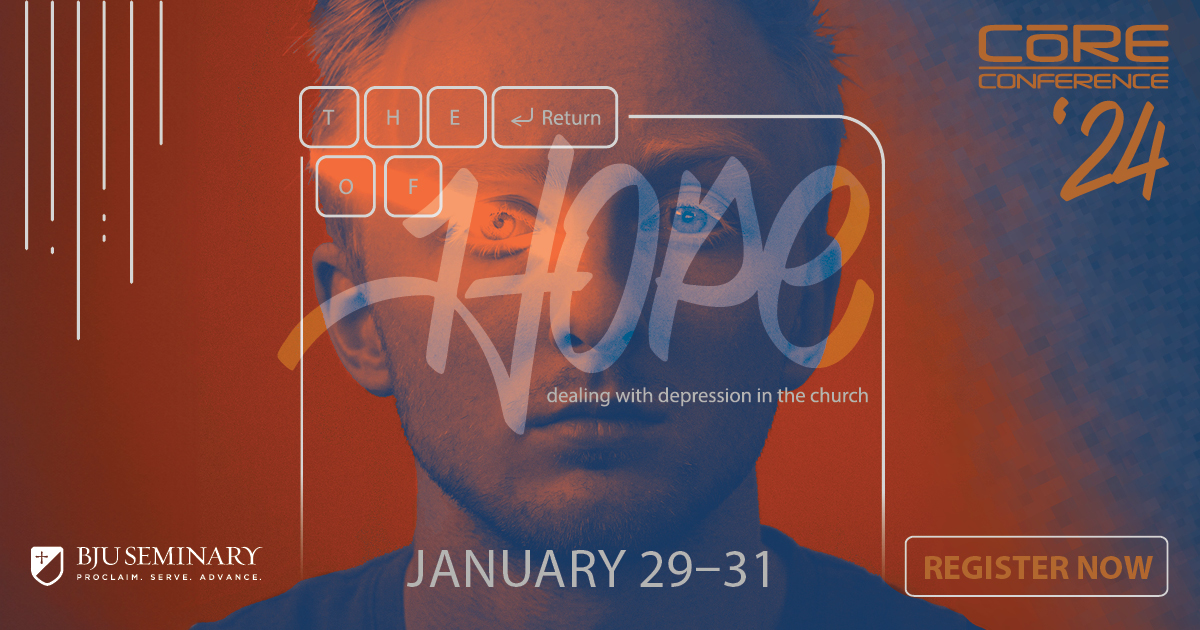 Today’s post is sponsored by BJU Seminary and written by Bruce Meyer, biblical counseling faculty member. BJU Seminary equips Christian leaders through an educational and ministry experience that is biblically shaped, theologically rich, historically significant, and evangelistically robust. What do we do with dark despair? If you know anything about depression, you know that its seems to be a ubiquitous problem but also a controversial subject. How could it be that we misunderstand such a common problem? Because in this world, there are many common problems for which we have little understanding. Left to ourselves, we often interpret situations through a lens that is at best fuzzy and at worst extremely fractured. So what should we make of such a common problem that causes such severe grief in so many? As we always should, let’s begin with what the Scriptures say about depression. Depending upon what translation a person uses, the word depression may not even appear in the Bible. Other words like sadness, despair, or grief, however, certainly establish that this emotion transcends time as much as the fallen human condition. Biblical authors, therefore, were neither ignorant of nor immune to heavy sadness that humans experience in daily living. Whatever term one chooses to use, there are countless passages that address this aspect of our fallenness. Even the Messiah was “a man of sorrows and acquainted with grief” (Isa. 53:3). We can trace these episodes of sorrow backwards to the Fall in Genesis 3, the beginning of all sorrows. It should be an axiom of life…]]>
Today’s post is sponsored by BJU Seminary and written by Bruce Meyer, biblical counseling faculty member. BJU Seminary equips Christian leaders through an educational and ministry experience that is biblically shaped, theologically rich, historically significant, and evangelistically robust. What do we do with dark despair? If you know anything about depression, you know that its seems to be a ubiquitous problem but also a controversial subject. How could it be that we misunderstand such a common problem? Because in this world, there are many common problems for which we have little understanding. Left to ourselves, we often interpret situations through a lens that is at best fuzzy and at worst extremely fractured. So what should we make of such a common problem that causes such severe grief in so many? As we always should, let’s begin with what the Scriptures say about depression. Depending upon what translation a person uses, the word depression may not even appear in the Bible. Other words like sadness, despair, or grief, however, certainly establish that this emotion transcends time as much as the fallen human condition. Biblical authors, therefore, were neither ignorant of nor immune to heavy sadness that humans experience in daily living. Whatever term one chooses to use, there are countless passages that address this aspect of our fallenness. Even the Messiah was “a man of sorrows and acquainted with grief” (Isa. 53:3). We can trace these episodes of sorrow backwards to the Fall in Genesis 3, the beginning of all sorrows. It should be an axiom of life…]]>
Today’s post is sponsored by BJU Seminary and written by Bruce Meyer, biblical counseling faculty member. BJU Seminary equips Christian leaders through an educational and ministry experience that is biblically shaped, theologically rich, historically significant, and evangelistically robust.
What do we do with dark despair?
If you know anything about depression, you know that its seems to be a ubiquitous problem but also a controversial subject. How could it be that we misunderstand such a common problem? Because in this world, there are many common problems for which we have little understanding. Left to ourselves, we often interpret situations through a lens that is at best fuzzy and at worst extremely fractured. So what should we make of such a common problem that causes such severe grief in so many?
As we always should, let’s begin with what the Scriptures say about depression. Depending upon what translation a person uses, the word depression may not even appear in the Bible. Other words like sadness, despair, or grief, however, certainly establish that this emotion transcends time as much as the fallen human condition. Biblical authors, therefore, were neither ignorant of nor immune to heavy sadness that humans experience in daily living. Whatever term one chooses to use, there are countless passages that address this aspect of our fallenness. Even the Messiah was “a man of sorrows and acquainted with grief” (Isa. 53:3). We can trace these episodes of sorrow backwards to the Fall in Genesis 3, the beginning of all sorrows.
It should be an axiom of life that both the horrors of hell and the joys of heaven sometimes leak into this world in varying degrees. We long, however, for more joys and fewer horrors, a longing that keeps nudging our eyes toward our Father and heaven. How should we respond when we, as children of God, experience some of those horrors? Has God left us without hope, without solutions, without answers? As prevalent as sadness is in the Scriptures, so are God’s words of hope, beginning right after the Fall with a promised deliverer (Gen. 3:15). We should know also that our grief is merely a symptom of living in a broken world, but God’s hope overrules all despair. Hope in God is the operative concept.
God has provided His children with focused truth that gives comforting direction in moments of depression and despair. Lament psalms constitute the largest portion of the psalter—59 in all. These laments are complaints about the psalmists’ circumstances, including complaints about God’s seeming inattentiveness. Psalm 88 is the darkest of the laments, yet it offers the hope of deliverance through a God who saves: “O LORD, God of my salvation; I cry out day and night before you” (v. 1). Although the hope in this psalm is brief in contrast to the complaints, the psalmist is still expectantly engaging with God through his pleas for deliverance (v. 2). Did you see the hope again?
The most directly applicable psalms to despairing sadness are Psalms 42 and 43. The two psalms are linked through the common question, “Why are you cast down, O my soul?” (42:5) that the psalmist sprinkles throughout both passages. In each psalm the author not only describes his heavy sorrows, but also preaches hope to his own soul through the nature and work of God. There it is again—hope!
If none of these psalms provide the salve your heavy heart needs, then dig into the other 56 laments. These laments will direct your heart to the Savior-God who rescues us not only from sin, but from the shattering despair we encounter in this life. As we walk with him, we can experience a living hope in our living God that sooths the aching soul.
Join BJU Seminary January 29–31 for its CoRE Conference on “The Return of Hope: Dealing with Depression in the Church.” Save with the early bird discount until December 15!
]]> Every word of the Bible matters. “All Scripture is breathed out by God and profitable for teaching, for reproof, for correction, and for training in righteousness.” The entire word of God is “living and active, sharper than any two-edged sword, piercing to the division of soul and of spirit, of joints and of marrow.” Its every part discerns “the thoughts and intentions of the heart.” Every chapter and every verse serves a God-given purpose. That’s not to say, though, that every chapter and every verse is equally important when it comes to knowing God, understanding his will, and living for his glory. Some sections carry special significance. Some sections are so important that the rest of the Bible cannot be understood apart from them. One of these is the third chapter of Genesis, for it stands between the perfect world of Genesis 2 and the utterly shattered world of Genesis 4. It explains what went so tragically wrong. Genesis 3 is the subject of Mitchell Chase’s book Short of Glory: A Biblical and Theological Exploration of the Fall. “All of us are born outside Eden,” he explains, “so Genesis 1–3 is a special set of chapters. God makes the world, and specifically a garden, for his people. And there, in the sacred space of Eden, God’s image bearers defy his word and succumb to the tempter. When God exiles them, we are exiled in them too.” This is the great tragedy. Yet all is not lost, for “in that same chapter where God announces judgment,…]]>
Every word of the Bible matters. “All Scripture is breathed out by God and profitable for teaching, for reproof, for correction, and for training in righteousness.” The entire word of God is “living and active, sharper than any two-edged sword, piercing to the division of soul and of spirit, of joints and of marrow.” Its every part discerns “the thoughts and intentions of the heart.” Every chapter and every verse serves a God-given purpose. That’s not to say, though, that every chapter and every verse is equally important when it comes to knowing God, understanding his will, and living for his glory. Some sections carry special significance. Some sections are so important that the rest of the Bible cannot be understood apart from them. One of these is the third chapter of Genesis, for it stands between the perfect world of Genesis 2 and the utterly shattered world of Genesis 4. It explains what went so tragically wrong. Genesis 3 is the subject of Mitchell Chase’s book Short of Glory: A Biblical and Theological Exploration of the Fall. “All of us are born outside Eden,” he explains, “so Genesis 1–3 is a special set of chapters. God makes the world, and specifically a garden, for his people. And there, in the sacred space of Eden, God’s image bearers defy his word and succumb to the tempter. When God exiles them, we are exiled in them too.” This is the great tragedy. Yet all is not lost, for “in that same chapter where God announces judgment,…]]>
Every word of the Bible matters. “All Scripture is breathed out by God and profitable for teaching, for reproof, for correction, and for training in righteousness.” The entire word of God is “living and active, sharper than any two-edged sword, piercing to the division of soul and of spirit, of joints and of marrow.” Its every part discerns “the thoughts and intentions of the heart.” Every chapter and every verse serves a God-given purpose.
That’s not to say, though, that every chapter and every verse is equally important when it comes to knowing God, understanding his will, and living for his glory. Some sections carry special significance. Some sections are so important that the rest of the Bible cannot be understood apart from them. One of these is the third chapter of Genesis, for it stands between the perfect world of Genesis 2 and the utterly shattered world of Genesis 4. It explains what went so tragically wrong.
Genesis 3 is the subject of Mitchell Chase’s book Short of Glory: A Biblical and Theological Exploration of the Fall. “All of us are born outside Eden,” he explains, “so Genesis 1–3 is a special set of chapters. God makes the world, and specifically a garden, for his people. And there, in the sacred space of Eden, God’s image bearers defy his word and succumb to the tempter. When God exiles them, we are exiled in them too.” This is the great tragedy. Yet all is not lost, for “in that same chapter where God announces judgment, he gives a promise of hope that a deliverer will come one day and defeat the serpent. The rest of the biblical story grows out of the ground of Genesis 3. When we meditate on the content of this chapter, many biblical themes and connections become clear. The events in Genesis 3 become a lens through which to read and understand the progressive revelation of God’s redemptive epic.”
He wants the reader to think of Genesis 3 as containing a number of seeds that grow into fuller form later in the Bible. “There are temptation and shame and coverings. There are a tree of wisdom and one of life. There are messianic hope, the reality of death in the dust, and exile from sacred space. There are blame shifting, hiding, and a response of faith.” It’s as we spend time carefully studying Genesis 3 that we come to understand so much of the Bible’s storyline, so much of its imagery, and so much of its promise. And further, we come to live better, for “if we situate the fall in Scripture’s storyline effectively, an exploration of Genesis 3 will result in greater joy in the good news about Jesus. By tuning our ears to creation’s groanings, our hope will be stirred along the way.”
This is the task Chase takes on in Short of Glory and he does it well. He explores a number of the themes that are introduced in Genesis 3 and that then carry on through the rest of the Bible. He begins with sacred space, “the kind of theme that locks the metanarrative together. Sacred space is given, lost, promised, and at last received again. As readers cross the threshold into Genesis 3, they come to a sacred place that God gave his people. God had made the heavens and the earth, and part of his work on earth included a garden in a place called Eden (2:8).” In this chapter we see that sacred space violated and lost, but also the promise that it will be recovered. We eventually see the shadow of that recovery in the tabernacle and temple and long to see its full recovery in heaven.
From here he turns to the two trees, to the God who walks and talks with his people, to the ancient serpent who leads them astray, and to the idea of taking and eating. And so it goes through several other themes, each of them introduced in Genesis 3 and each of them carrying into the rest of the Bible. In each case, he doesn’t merely explain these themes, but also applies them to the Christian life. And so this is not just a book of abstract theology, but a book that calls us to better Christian living.
Short of Glory is a relatively small book, but it is one that deals with one of the most important passages in the entire Bible. It explains it, applies it, and calls Christians to live according to it. For those reasons and many more, I highly recommend reading both the chapter itself and this excellent explanation of it.
]]> Though May has come and gone, it proved to be a good month for Christian book releases. I sorted through the stacks that landed on my desk and arrived at this list of new and notables. In each case I’ve provided the editorial description to give you a sense of what it’s all about. I hope there’s something here that catches your eye! ESV Teen Study Bible. The new ESV Teen Study Bible is targeted at teens from 14 to 18 years of age and is available in a variety of cover styles and treatments. “Our world today pushes an endless number of distractions and temptations, which is why having faithful and accessible biblical resources for teens is more important than ever. Edited by pastor Jon Nielson, the ESV Teen Study Bible features numerous study and resource materials–including 12,000 accessible study notes adapted from the ESV Concise Study Bible, 365 devotions adapted from God’s Great Story by Jon Nielson, and 200 sidebars defining key doctrines and helping teens apply Scripture to their own lives. It also has full-page introductions for each biblical book, more than 150 maps and illustrations, an extensive glossary and concordance, and over a dozen topical articles. These features help facilitate deep engagement with the Scriptures, impacting the minds, hearts, and lives of teen followers of Christ.” (Buy it at Amazon or Westminster Books) Knowing God’s Truth: An Introduction to Systematic Theology by Jon Nielson. And speaking of Jon Nielson, here’s another new resource with his name on it. Note that there…]]>
Though May has come and gone, it proved to be a good month for Christian book releases. I sorted through the stacks that landed on my desk and arrived at this list of new and notables. In each case I’ve provided the editorial description to give you a sense of what it’s all about. I hope there’s something here that catches your eye! ESV Teen Study Bible. The new ESV Teen Study Bible is targeted at teens from 14 to 18 years of age and is available in a variety of cover styles and treatments. “Our world today pushes an endless number of distractions and temptations, which is why having faithful and accessible biblical resources for teens is more important than ever. Edited by pastor Jon Nielson, the ESV Teen Study Bible features numerous study and resource materials–including 12,000 accessible study notes adapted from the ESV Concise Study Bible, 365 devotions adapted from God’s Great Story by Jon Nielson, and 200 sidebars defining key doctrines and helping teens apply Scripture to their own lives. It also has full-page introductions for each biblical book, more than 150 maps and illustrations, an extensive glossary and concordance, and over a dozen topical articles. These features help facilitate deep engagement with the Scriptures, impacting the minds, hearts, and lives of teen followers of Christ.” (Buy it at Amazon or Westminster Books) Knowing God’s Truth: An Introduction to Systematic Theology by Jon Nielson. And speaking of Jon Nielson, here’s another new resource with his name on it. Note that there…]]>
Though May has come and gone, it proved to be a good month for Christian book releases. I sorted through the stacks that landed on my desk and arrived at this list of new and notables. In each case I’ve provided the editorial description to give you a sense of what it’s all about. I hope there’s something here that catches your eye!
 ESV Teen Study Bible. The new ESV Teen Study Bible is targeted at teens from 14 to 18 years of age and is available in a variety of cover styles and treatments. “Our world today pushes an endless number of distractions and temptations, which is why having faithful and accessible biblical resources for teens is more important than ever. Edited by pastor Jon Nielson, the ESV Teen Study Bible features numerous study and resource materials–including 12,000 accessible study notes adapted from the ESV Concise Study Bible, 365 devotions adapted from God’s Great Story by Jon Nielson, and 200 sidebars defining key doctrines and helping teens apply Scripture to their own lives. It also has full-page introductions for each biblical book, more than 150 maps and illustrations, an extensive glossary and concordance, and over a dozen topical articles. These features help facilitate deep engagement with the Scriptures, impacting the minds, hearts, and lives of teen followers of Christ.” (Buy it at Amazon or Westminster Books)
ESV Teen Study Bible. The new ESV Teen Study Bible is targeted at teens from 14 to 18 years of age and is available in a variety of cover styles and treatments. “Our world today pushes an endless number of distractions and temptations, which is why having faithful and accessible biblical resources for teens is more important than ever. Edited by pastor Jon Nielson, the ESV Teen Study Bible features numerous study and resource materials–including 12,000 accessible study notes adapted from the ESV Concise Study Bible, 365 devotions adapted from God’s Great Story by Jon Nielson, and 200 sidebars defining key doctrines and helping teens apply Scripture to their own lives. It also has full-page introductions for each biblical book, more than 150 maps and illustrations, an extensive glossary and concordance, and over a dozen topical articles. These features help facilitate deep engagement with the Scriptures, impacting the minds, hearts, and lives of teen followers of Christ.” (Buy it at Amazon or Westminster Books)
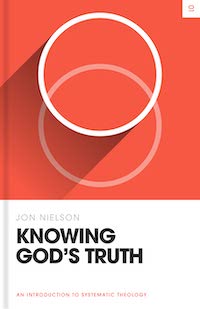 Knowing God’s Truth: An Introduction to Systematic Theology by Jon Nielson. And speaking of Jon Nielson, here’s another new resource with his name on it. Note that there is both an optional workbook and DVD to go with it. “When you consider theology, you may think of confusing, lofty terminology that only concerns scholars and pastors. But in reality, theology is for anyone who wants to better understand God and learn more about the Bible. Theology—the study of God and his word—should be personal, accessible, and worshipful. Pastor Jon Nielson has written Knowing God’s Truth, a part of the Theology Basics suite, to make systematic theology clear, meaningful, and practical for those looking for a highly accessible guide to studying God. In this introduction, Nielson defines systematic theology as “theological study done in a highly organized, topical way” and covers the 12 basic categories—Scripture, man, sin, church, and more. He also helps readers learn to apply theology in their everyday lives by integrating invitations to pray and meditate on what they’ve learned.” (Buy it at Amazon or Westminster Books)
Knowing God’s Truth: An Introduction to Systematic Theology by Jon Nielson. And speaking of Jon Nielson, here’s another new resource with his name on it. Note that there is both an optional workbook and DVD to go with it. “When you consider theology, you may think of confusing, lofty terminology that only concerns scholars and pastors. But in reality, theology is for anyone who wants to better understand God and learn more about the Bible. Theology—the study of God and his word—should be personal, accessible, and worshipful. Pastor Jon Nielson has written Knowing God’s Truth, a part of the Theology Basics suite, to make systematic theology clear, meaningful, and practical for those looking for a highly accessible guide to studying God. In this introduction, Nielson defines systematic theology as “theological study done in a highly organized, topical way” and covers the 12 basic categories—Scripture, man, sin, church, and more. He also helps readers learn to apply theology in their everyday lives by integrating invitations to pray and meditate on what they’ve learned.” (Buy it at Amazon or Westminster Books)
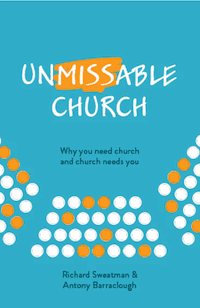 Unmissable Church: Why You Need Church and Church Needs You by Richard Sweatman & Antony Barraclough. “Modern life is a constant struggle between competing priorities, and for Christians especially so on Sundays. How can we juggle all the demands on our time and still make church a priority? Why is there sometimes such a disconnect between the Bible’s captivating vision for church and our experience of it? In Unmissable Church, Antony Barraclough and Richard Sweatman combine meticulous research, practical advice and pastoral warmth. They explore the reasons why it’s sometimes difficult to make it to church and what we can do about it. The issues of broken relationships, conflicting priorities, health concerns and more are treated with empathy and encouragement. Whether you are a leader looking to understand what’s keeping people away from church, a regular attender who wants to encourage others to gather more often, or someone who finds weekly attendance a challenge, this book will bring you greater clarity and perspective.” (Buy it at Amazon or Matthias Media)
Unmissable Church: Why You Need Church and Church Needs You by Richard Sweatman & Antony Barraclough. “Modern life is a constant struggle between competing priorities, and for Christians especially so on Sundays. How can we juggle all the demands on our time and still make church a priority? Why is there sometimes such a disconnect between the Bible’s captivating vision for church and our experience of it? In Unmissable Church, Antony Barraclough and Richard Sweatman combine meticulous research, practical advice and pastoral warmth. They explore the reasons why it’s sometimes difficult to make it to church and what we can do about it. The issues of broken relationships, conflicting priorities, health concerns and more are treated with empathy and encouragement. Whether you are a leader looking to understand what’s keeping people away from church, a regular attender who wants to encourage others to gather more often, or someone who finds weekly attendance a challenge, this book will bring you greater clarity and perspective.” (Buy it at Amazon or Matthias Media)
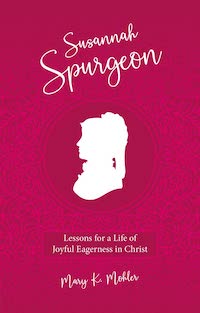 Susannah Spurgeon: Lessons for a Life of Joyful Eagerness in Christ by Mary Mohler. “Have you heard of Spurgeon? Preacher, evangelist and stalwart patriarch of the Modern Western Church today. If the cliché ‘behind every great man is a strong woman’, is true, then Susannah Spurgeon remains one of the matriarchs of the same tradition. Spurgeon was the bone companion of her husband. As a pastoral assistant, as Charles’ wife and support through trials, this woman’s biography has been a long time coming. Mary Mohler has gathered information on Susie from sources spanning letters, devotionals and biographies. The result is a thoughtful, sympathetic and endearing epitaph to a sister in Christ, whose voice can no longer be ignored. Mohler allows room for academics, mothers, daughters and wives to dwell on Spurgeon’s joyful eagerness in Christ.” (Buy it at Amazon or Westminster Books)
Susannah Spurgeon: Lessons for a Life of Joyful Eagerness in Christ by Mary Mohler. “Have you heard of Spurgeon? Preacher, evangelist and stalwart patriarch of the Modern Western Church today. If the cliché ‘behind every great man is a strong woman’, is true, then Susannah Spurgeon remains one of the matriarchs of the same tradition. Spurgeon was the bone companion of her husband. As a pastoral assistant, as Charles’ wife and support through trials, this woman’s biography has been a long time coming. Mary Mohler has gathered information on Susie from sources spanning letters, devotionals and biographies. The result is a thoughtful, sympathetic and endearing epitaph to a sister in Christ, whose voice can no longer be ignored. Mohler allows room for academics, mothers, daughters and wives to dwell on Spurgeon’s joyful eagerness in Christ.” (Buy it at Amazon or Westminster Books)
 Do Not Be True to Yourself: Countercultural Advice for the Rest of Your Life by Kevin DeYoung. “Most speeches addressed to high school and college students follow a similar theme: march to the beat of your own drum. This may sound encouraging on the surface, but Scripture exhorts believers to submit their lives to the will of God, not their own desires. Christian students need gospel-centered truth to guide them on their journey toward independence. In this collection of inspiring sermons and graduation speeches, Kevin DeYoung delivers a motivational, biblical call to young people: serve God faithfully—and if necessary, counter-culturally—in the next season of your life. Do Not Be True to Yourself includes practical advice for cultivating a Christ-centered worldview in every area of adult life, including relationships, work, church participation, and spiritual growth, making it a transformational resource for mentoring students.” (Buy it at Amazon or Westminster Books)
Do Not Be True to Yourself: Countercultural Advice for the Rest of Your Life by Kevin DeYoung. “Most speeches addressed to high school and college students follow a similar theme: march to the beat of your own drum. This may sound encouraging on the surface, but Scripture exhorts believers to submit their lives to the will of God, not their own desires. Christian students need gospel-centered truth to guide them on their journey toward independence. In this collection of inspiring sermons and graduation speeches, Kevin DeYoung delivers a motivational, biblical call to young people: serve God faithfully—and if necessary, counter-culturally—in the next season of your life. Do Not Be True to Yourself includes practical advice for cultivating a Christ-centered worldview in every area of adult life, including relationships, work, church participation, and spiritual growth, making it a transformational resource for mentoring students.” (Buy it at Amazon or Westminster Books)
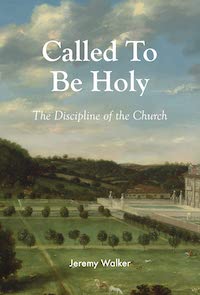 Called to Be Holy: The Discipline of the Church by Jeremy Walker. “Discipline is not a dirty word. Any group which is united and effective embraces discipline to promote the health and strength of the group as a whole and its survival over time. The same is true of the church of Jesus Christ, serving and striving together so that Christ is formed in every member. This booklet is a concise summary of the principles and the practices Christ has given for the holiness of his church. Jeremy Walker skillfully explains the assumptions that lie behind church discipline, grounded in the identity of the church and activity of the church of God. The text looks at the God-ordained purposes of corrective discipline, and the reasons why a church might have to pursue this course. Called to Be Holy offers practical advice as to how such discipline ought to be carried out in the church of Jesus Christ, it speaks to the nature of church discipline, in its more positive and negative aspects, and it identifies love as the primary motive behind any discipline in the church. Ultimately, the church of the living God needs to respond righteously when there is sin in her midst. God has not left us alone in this! Wisely and graciously, the Head of the church has told us how and why the church must discipline unrepentant sin.” (Buy it at Amazon)
Called to Be Holy: The Discipline of the Church by Jeremy Walker. “Discipline is not a dirty word. Any group which is united and effective embraces discipline to promote the health and strength of the group as a whole and its survival over time. The same is true of the church of Jesus Christ, serving and striving together so that Christ is formed in every member. This booklet is a concise summary of the principles and the practices Christ has given for the holiness of his church. Jeremy Walker skillfully explains the assumptions that lie behind church discipline, grounded in the identity of the church and activity of the church of God. The text looks at the God-ordained purposes of corrective discipline, and the reasons why a church might have to pursue this course. Called to Be Holy offers practical advice as to how such discipline ought to be carried out in the church of Jesus Christ, it speaks to the nature of church discipline, in its more positive and negative aspects, and it identifies love as the primary motive behind any discipline in the church. Ultimately, the church of the living God needs to respond righteously when there is sin in her midst. God has not left us alone in this! Wisely and graciously, the Head of the church has told us how and why the church must discipline unrepentant sin.” (Buy it at Amazon)
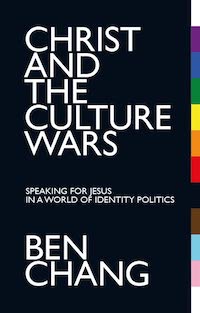 Christ and the Culture Wars: Speaking for Jesus in a World of Identity Politics by Benjamin Chang. “In our modern world the gospel of Jesus is seen by many less as good news for all humanity, and more as the bigoted edicts of a bygone era. Benjamin Chang explores the stories of the revolution, tracing the trajectories of four of the biggest social justice movements—feminism, racial justice, gay pride and the trans movement—before looking at the ways Christians usually engage with these arenas of cultural conflict (mirror, argue, ignore) and identifying a better way forward. Rather than hunkering down in our own identity tribes, arguing against other groups, or ignoring what is going on in the culture around us, Chang encourages Christians to find ways to speak for Jesus. He urges us to look at the way we tell stories, and consider whether we can re-capture hearts in our culture by telling a more powerful counter-narrative. He gives us language to use to speak about the cross in our world of identity politics. We will see that the gospel resonates with a culture when it speaks the language of the culture.” (Buy it at Amazon or Westminster Books)
Christ and the Culture Wars: Speaking for Jesus in a World of Identity Politics by Benjamin Chang. “In our modern world the gospel of Jesus is seen by many less as good news for all humanity, and more as the bigoted edicts of a bygone era. Benjamin Chang explores the stories of the revolution, tracing the trajectories of four of the biggest social justice movements—feminism, racial justice, gay pride and the trans movement—before looking at the ways Christians usually engage with these arenas of cultural conflict (mirror, argue, ignore) and identifying a better way forward. Rather than hunkering down in our own identity tribes, arguing against other groups, or ignoring what is going on in the culture around us, Chang encourages Christians to find ways to speak for Jesus. He urges us to look at the way we tell stories, and consider whether we can re-capture hearts in our culture by telling a more powerful counter-narrative. He gives us language to use to speak about the cross in our world of identity politics. We will see that the gospel resonates with a culture when it speaks the language of the culture.” (Buy it at Amazon or Westminster Books)
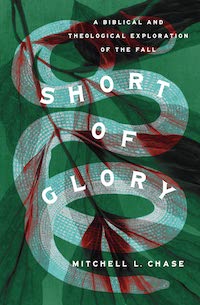 Short of Glory: A Biblical and Theological Exploration of the Fall by Mitchell L. Chase. “When looking around at the world, it is easy to see that all is not as it should be. This brokenness within the world and humanity finds its roots in mankind’s rebellion against God. The fall, as recorded in Genesis 3, sets the stage for creation’s need for redemption—ultimately found in Jesus Christ. In this book, pastor and professor Mitchell Chase argues that in order to understand the fall and recognize its profound impact on later Scripture and the world today, Christians must first understand Genesis 3. Chase identifies themes found in Genesis 3—temptation, shame, messianic hope, and more—and shows how they reverberate throughout the rest of the storyline of Scripture. Understanding Adam and Eve’s fall is crucial to understanding the world as it currently is and the need for redemption through Jesus.” (Buy it at Amazon or Westminster Books)
Short of Glory: A Biblical and Theological Exploration of the Fall by Mitchell L. Chase. “When looking around at the world, it is easy to see that all is not as it should be. This brokenness within the world and humanity finds its roots in mankind’s rebellion against God. The fall, as recorded in Genesis 3, sets the stage for creation’s need for redemption—ultimately found in Jesus Christ. In this book, pastor and professor Mitchell Chase argues that in order to understand the fall and recognize its profound impact on later Scripture and the world today, Christians must first understand Genesis 3. Chase identifies themes found in Genesis 3—temptation, shame, messianic hope, and more—and shows how they reverberate throughout the rest of the storyline of Scripture. Understanding Adam and Eve’s fall is crucial to understanding the world as it currently is and the need for redemption through Jesus.” (Buy it at Amazon or Westminster Books)
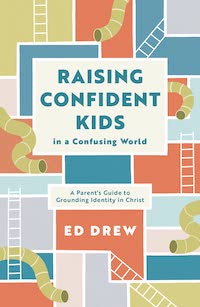 Raising Confident Kids in a Confusing World: A Parent’s Guide to Grounding Identity in Christ by Ed Drew. “As our children grow up, they hear many conflicting messages about who they are. They are told that they can define themselves by their achievements or popularity, or by how they feel, and that sexuality, morality and gender are just questions of personal choice. Too often, Christian parents feel nervous and intimidated about engaging with their children on the subjects of bodies, gender, sexuality and their sense of self. This warm and realistic book helps parents to show their children that the Bible has better answers than our culture on these topics, which are neither surprising nor confusing to our creator God. Full of biblical truth, practical wisdom and discussion questions, this book will inspire and equip parents to help their children find their identity in being made and loved by Jesus. An identity based on God’s love will help Children to have both a positive and a realistic view of themselves, and it will give them confidence to live by faith in a secular world.” (Buy it at Amazon or Westminster Books)
Raising Confident Kids in a Confusing World: A Parent’s Guide to Grounding Identity in Christ by Ed Drew. “As our children grow up, they hear many conflicting messages about who they are. They are told that they can define themselves by their achievements or popularity, or by how they feel, and that sexuality, morality and gender are just questions of personal choice. Too often, Christian parents feel nervous and intimidated about engaging with their children on the subjects of bodies, gender, sexuality and their sense of self. This warm and realistic book helps parents to show their children that the Bible has better answers than our culture on these topics, which are neither surprising nor confusing to our creator God. Full of biblical truth, practical wisdom and discussion questions, this book will inspire and equip parents to help their children find their identity in being made and loved by Jesus. An identity based on God’s love will help Children to have both a positive and a realistic view of themselves, and it will give them confidence to live by faith in a secular world.” (Buy it at Amazon or Westminster Books)
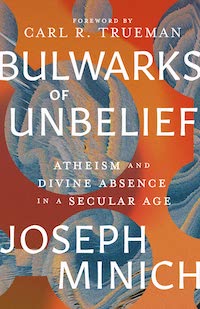 Bulwarks of Unbelief: Atheism and Divine Absence in a Secular Age by Joseph Minich. “Millions of people in the West identify as atheists. Christians often respond to this reality with proofs of God’s existence, as though rational arguments for atheism were the root cause of unbelief. In Bulwarks of Unbelief, Joseph Minich argues that a felt absence of God, as experienced by the modern individual, offers a better explanation for the rise in atheism. Recent technological and cultural shifts in the modern West have produced a perceived challenge to God’s existence. As modern technoculture reshapes our awareness of reality and belief in the invisible, it in turn amplifies God’s apparent silence. In this new context, atheism is a natural result. And absent of meaning from without, we have turned within. Christians cannot escape this aspect of modern life. Minich argues that we must consciously and actively return to reality. If we reattune ourselves to God’s story, reintegrate the whole person, and reinhabit the world, faith can thrive in this age of unbelief.” (Buy it at Amazon or Westminster Books)
Bulwarks of Unbelief: Atheism and Divine Absence in a Secular Age by Joseph Minich. “Millions of people in the West identify as atheists. Christians often respond to this reality with proofs of God’s existence, as though rational arguments for atheism were the root cause of unbelief. In Bulwarks of Unbelief, Joseph Minich argues that a felt absence of God, as experienced by the modern individual, offers a better explanation for the rise in atheism. Recent technological and cultural shifts in the modern West have produced a perceived challenge to God’s existence. As modern technoculture reshapes our awareness of reality and belief in the invisible, it in turn amplifies God’s apparent silence. In this new context, atheism is a natural result. And absent of meaning from without, we have turned within. Christians cannot escape this aspect of modern life. Minich argues that we must consciously and actively return to reality. If we reattune ourselves to God’s story, reintegrate the whole person, and reinhabit the world, faith can thrive in this age of unbelief.” (Buy it at Amazon or Westminster Books)
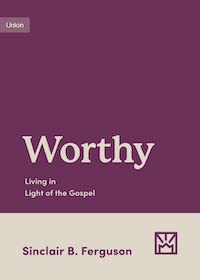 Worthy: Living in Light of the Gospel by Sinclair Ferguson. “While Jesus offers forgiveness for believers who sin, Scripture makes it clear that Christians are to pursue obedience and holiness. So what does it mean to walk in a manner that’s “worthy of the gospel of Christ” (Phil. 1:27), and how should that look in the life of a Christ follower? In this short, accessible guide, theologian Sinclair Ferguson explains the importance of living worthy of the gospel, why the principle is often forgotten, and how it’s cultivated. Clarifying the difference between biblical obedience and legalism, Ferguson exhorts believers to pursue Christlikeness, offering practical examples from Scripture. The second book of the Growing Gospel Integrity series, Worthy helps Christians, students, pastors, and those preparing for ministry to live as citizens of heaven rather than citizens of the world.” (Buy it at Amazon or Westminster Books)
Worthy: Living in Light of the Gospel by Sinclair Ferguson. “While Jesus offers forgiveness for believers who sin, Scripture makes it clear that Christians are to pursue obedience and holiness. So what does it mean to walk in a manner that’s “worthy of the gospel of Christ” (Phil. 1:27), and how should that look in the life of a Christ follower? In this short, accessible guide, theologian Sinclair Ferguson explains the importance of living worthy of the gospel, why the principle is often forgotten, and how it’s cultivated. Clarifying the difference between biblical obedience and legalism, Ferguson exhorts believers to pursue Christlikeness, offering practical examples from Scripture. The second book of the Growing Gospel Integrity series, Worthy helps Christians, students, pastors, and those preparing for ministry to live as citizens of heaven rather than citizens of the world.” (Buy it at Amazon or Westminster Books)
 Good morning. Grace and peace to you. Today’s Kindle deals include a great selection from Crossway. I happened to notice that Amazon has a good number of games and activities on sale today. (Yesterday on the blog: A Man Both Bruised and Broke) My Father’s Death Brought Me Life This is powerful in its own way. “I thought death meant being stuck in the dark, like being inside a vacuum. I wasn’t afraid of the cold but of being desperately alone. No one would hear me. No one would come to help me. And I’d be lying there forever. As I grew, this fear of death and loneliness was replaced by a general anxiety mixed with the knowledge that my deep fear of dying revealed a lack of faith and trust in God.” The Platform Problem Pierce has an interesting one that considers writers and their need for platform. Hollywood, Netflix, & Co. Know Our Hearts “This tragic moment in human history was when a new kingdom was born—the kingdom of ‘I’ and selfishness. Since the Fall of man described in Genesis 3, man does not want to fulfill his creation mandate—to live solely for the glorification of his Creator. Quite the opposite. He wants to make himself the center of his own kingdom, his own universe, and his own glorification.” Say What, Paul? Six Things 1 Timothy 2:8–15 Does Not Mean 1 Timothy 2:8–15 is a tricky text—and as important as knowing what it says is knowing what it doesn’t say. Does God have…]]>
Good morning. Grace and peace to you. Today’s Kindle deals include a great selection from Crossway. I happened to notice that Amazon has a good number of games and activities on sale today. (Yesterday on the blog: A Man Both Bruised and Broke) My Father’s Death Brought Me Life This is powerful in its own way. “I thought death meant being stuck in the dark, like being inside a vacuum. I wasn’t afraid of the cold but of being desperately alone. No one would hear me. No one would come to help me. And I’d be lying there forever. As I grew, this fear of death and loneliness was replaced by a general anxiety mixed with the knowledge that my deep fear of dying revealed a lack of faith and trust in God.” The Platform Problem Pierce has an interesting one that considers writers and their need for platform. Hollywood, Netflix, & Co. Know Our Hearts “This tragic moment in human history was when a new kingdom was born—the kingdom of ‘I’ and selfishness. Since the Fall of man described in Genesis 3, man does not want to fulfill his creation mandate—to live solely for the glorification of his Creator. Quite the opposite. He wants to make himself the center of his own kingdom, his own universe, and his own glorification.” Say What, Paul? Six Things 1 Timothy 2:8–15 Does Not Mean 1 Timothy 2:8–15 is a tricky text—and as important as knowing what it says is knowing what it doesn’t say. Does God have…]]>
Good morning. Grace and peace to you.
Today’s Kindle deals include a great selection from Crossway.
I happened to notice that Amazon has a good number of games and activities on sale today.
(Yesterday on the blog: A Man Both Bruised and Broke)
My Father’s Death Brought Me Life
This is powerful in its own way. “I thought death meant being stuck in the dark, like being inside a vacuum. I wasn’t afraid of the cold but of being desperately alone. No one would hear me. No one would come to help me. And I’d be lying there forever. As I grew, this fear of death and loneliness was replaced by a general anxiety mixed with the knowledge that my deep fear of dying revealed a lack of faith and trust in God.”
The Platform Problem
Pierce has an interesting one that considers writers and their need for platform.
Hollywood, Netflix, & Co. Know Our Hearts
“This tragic moment in human history was when a new kingdom was born—the kingdom of ‘I’ and selfishness. Since the Fall of man described in Genesis 3, man does not want to fulfill his creation mandate—to live solely for the glorification of his Creator. Quite the opposite. He wants to make himself the center of his own kingdom, his own universe, and his own glorification.”
Say What, Paul? Six Things 1 Timothy 2:8–15 Does Not Mean
1 Timothy 2:8–15 is a tricky text—and as important as knowing what it says is knowing what it doesn’t say.
Does God have Emotions?
“Christians claim God is impassible—without passions. For example, the Westminster Confession of Faith affirms, God is ‘without body, parts, or passions’ (2.1). For most people, this seems to affirm God has no emotions under the reasonable assumption that passions are emotions. But such a teaching, although everywhere present in the history of Christianity, seems at variance with biblical teaching.” Wyatt tries to put together some of the pieces.
What Jesus Saw When He Looked at Peter after the Rooster Crowed
“How do you think Jesus looked at Peter? Was Jesus surprised? Frustrated? Ashamed? If you are a Christian, then your understanding of how Jesus looked at Peter is foundational to your perception of how he looks at you when you sin.”
Flashback: Are You Writing Headlines for You or Articles for Them?
It is no great feat to create the kind of headline that will get people to your site. What is much harder is to create content that will actually benefit them once they get there.
]]> Today is Remembrance Day in Canada, and I’m thinking about my grandmother’s brother who died during the Second World War as a fighter pilot for the Royal Canadian Air Force. There are a couple of notable Kindle deals today, including a good one from Paul Tripp. (Yesterday on the blog: Life Is Fleeting) What is conscience and why does it matter? Stephen Kneale says, “I think many of us have a particularly poor understanding of just what conscience is.” He moves conscience from the realm of feeling to the realm of knowledge. An Outline for Understanding Issues of Conscience and Legalism This is another interesting one on conscience. “Most of us have seen the movie ‘Chariots of Fire’ and have been greatly encouraged by the example of Eric Liddell who refused to compete in races on Sunday. But if a Christian held a different position regarding what is allowed on Sunday, could that believer be just as dedicated to Christ with his differing opinion?” Self-Worship Is the World’s Fastest-Growing Religion Thaddeus Williams: “In our day, the Westminster Catechism answer has been inverted: ‘the chief end of man is to glorify and enjoy himself forever.’ One could even make a case that self-worship is the world’s fastest-growing religion. It is certainly the world’s oldest (just read Gen. 3). Moreover, this religion lies beneath many of the most hot-button social and political issues of our day.” Kindness in a World Gone Mad “I was waiting in line with my sons for a roller coaster when the T-shirt…]]>
Today is Remembrance Day in Canada, and I’m thinking about my grandmother’s brother who died during the Second World War as a fighter pilot for the Royal Canadian Air Force. There are a couple of notable Kindle deals today, including a good one from Paul Tripp. (Yesterday on the blog: Life Is Fleeting) What is conscience and why does it matter? Stephen Kneale says, “I think many of us have a particularly poor understanding of just what conscience is.” He moves conscience from the realm of feeling to the realm of knowledge. An Outline for Understanding Issues of Conscience and Legalism This is another interesting one on conscience. “Most of us have seen the movie ‘Chariots of Fire’ and have been greatly encouraged by the example of Eric Liddell who refused to compete in races on Sunday. But if a Christian held a different position regarding what is allowed on Sunday, could that believer be just as dedicated to Christ with his differing opinion?” Self-Worship Is the World’s Fastest-Growing Religion Thaddeus Williams: “In our day, the Westminster Catechism answer has been inverted: ‘the chief end of man is to glorify and enjoy himself forever.’ One could even make a case that self-worship is the world’s fastest-growing religion. It is certainly the world’s oldest (just read Gen. 3). Moreover, this religion lies beneath many of the most hot-button social and political issues of our day.” Kindness in a World Gone Mad “I was waiting in line with my sons for a roller coaster when the T-shirt…]]>
Today is Remembrance Day in Canada, and I’m thinking about my grandmother’s brother who died during the Second World War as a fighter pilot for the Royal Canadian Air Force.
There are a couple of notable Kindle deals today, including a good one from Paul Tripp.
(Yesterday on the blog: Life Is Fleeting)
What is conscience and why does it matter?
Stephen Kneale says, “I think many of us have a particularly poor understanding of just what conscience is.” He moves conscience from the realm of feeling to the realm of knowledge.
An Outline for Understanding Issues of Conscience and Legalism
This is another interesting one on conscience. “Most of us have seen the movie ‘Chariots of Fire’ and have been greatly encouraged by the example of Eric Liddell who refused to compete in races on Sunday. But if a Christian held a different position regarding what is allowed on Sunday, could that believer be just as dedicated to Christ with his differing opinion?”
Self-Worship Is the World’s Fastest-Growing Religion
Thaddeus Williams: “In our day, the Westminster Catechism answer has been inverted: ‘the chief end of man is to glorify and enjoy himself forever.’ One could even make a case that self-worship is the world’s fastest-growing religion. It is certainly the world’s oldest (just read Gen. 3). Moreover, this religion lies beneath many of the most hot-button social and political issues of our day.”
Kindness in a World Gone Mad
“I was waiting in line with my sons for a roller coaster when the T-shirt caught my eye: Kindness is free — so sprinkle that stuff everywhere. I’m sympathetic to the message at one level…” If only kindness was so easy…
Pass the Promise
Here’s another nice new song, this one from the Gettys and Sandra McCracken.
Whispers of God’s Greatness
I enjoyed Lauren’s reflection on God’s greatness. “We only get whispers. And yet how powerful these whispers are! Can you even imagine how loudly the fullness of God’s glory must shout?”
Flashback: Keep a Close Watch on Yourself!
God charges every Christian to be vigilant over how you behave and what you believe. Are you keeping a close watch?
]]> Today’s Kindle deals offer a few interesting books, including a relatively new one from John MacArthur. (Yesterday on the blog: New and Notable Christian Books for January 2020) What Does Paul Mean When He Says, “Act Like Men”? I had been meaning to figure this out and write this article, so am glad Wyatt got to it. That Famous Cello Prelude, Deconstructed (Video) You may not recognize Bach’s G major prelude just by naming it, but you’ve definitely heard it many, many times. Sing! The Scriptures | Aug. 31 – Sept. 2 | Nashville I will be speaking at the Getty Music Worship Conference: Sing! The Scriptures alongside Joni Tada, John MacArthur, David Platt, Trip Lee, Bob Kauflin, and many others! Hurry – Early Bird registration ends soon. It will be three days of deep theology, timeless artistry and rich congregational worship! Join us for an in-depth look at the songs of scripture from Genesis to Revelation and Martin Luther’s emphasis on speaking, singing, preaching, praying and living out the Word. It also includes special concerts at the Grand Ole Opry & Bridgestone Arena! (Sponsored Link) What We Can Learn from the #MeToo Moments in Genesis Here’s a fascinating one from Kevin DeYoung. “The first book of the Bible is a picture of sin run amuck. Of course, we also find in Genesis a display of God’s creative power, his plan of redemption, and his sovereign mercy in blessing his undeserving people. But even amidst this wonderful good news, we see plenty of examples of…]]>
Today’s Kindle deals offer a few interesting books, including a relatively new one from John MacArthur. (Yesterday on the blog: New and Notable Christian Books for January 2020) What Does Paul Mean When He Says, “Act Like Men”? I had been meaning to figure this out and write this article, so am glad Wyatt got to it. That Famous Cello Prelude, Deconstructed (Video) You may not recognize Bach’s G major prelude just by naming it, but you’ve definitely heard it many, many times. Sing! The Scriptures | Aug. 31 – Sept. 2 | Nashville I will be speaking at the Getty Music Worship Conference: Sing! The Scriptures alongside Joni Tada, John MacArthur, David Platt, Trip Lee, Bob Kauflin, and many others! Hurry – Early Bird registration ends soon. It will be three days of deep theology, timeless artistry and rich congregational worship! Join us for an in-depth look at the songs of scripture from Genesis to Revelation and Martin Luther’s emphasis on speaking, singing, preaching, praying and living out the Word. It also includes special concerts at the Grand Ole Opry & Bridgestone Arena! (Sponsored Link) What We Can Learn from the #MeToo Moments in Genesis Here’s a fascinating one from Kevin DeYoung. “The first book of the Bible is a picture of sin run amuck. Of course, we also find in Genesis a display of God’s creative power, his plan of redemption, and his sovereign mercy in blessing his undeserving people. But even amidst this wonderful good news, we see plenty of examples of…]]>
Today’s Kindle deals offer a few interesting books, including a relatively new one from John MacArthur.
(Yesterday on the blog: New and Notable Christian Books for January 2020)
What Does Paul Mean When He Says, “Act Like Men”?
I had been meaning to figure this out and write this article, so am glad Wyatt got to it.
That Famous Cello Prelude, Deconstructed (Video)
You may not recognize Bach’s G major prelude just by naming it, but you’ve definitely heard it many, many times.
Sing! The Scriptures | Aug. 31 – Sept. 2 | Nashville
I will be speaking at the Getty Music Worship Conference: Sing! The Scriptures alongside Joni Tada, John MacArthur, David Platt, Trip Lee, Bob Kauflin, and many others! Hurry – Early Bird registration ends soon. It will be three days of deep theology, timeless artistry and rich congregational worship! Join us for an in-depth look at the songs of scripture from Genesis to Revelation and Martin Luther’s emphasis on speaking, singing, preaching, praying and living out the Word. It also includes special concerts at the Grand Ole Opry & Bridgestone Arena! (Sponsored Link)
What We Can Learn from the #MeToo Moments in Genesis
Here’s a fascinating one from Kevin DeYoung. “The first book of the Bible is a picture of sin run amuck. Of course, we also find in Genesis a display of God’s creative power, his plan of redemption, and his sovereign mercy in blessing his undeserving people. But even amidst this wonderful good news, we see plenty of examples of the corrupting effects of sin from Genesis 3 through the end of the book.”
Virginia and the Lie at the Heart of the Pro-Choice Movement
Jesse Johnson: “Virginia’s senate narrowly repealed laws regulating abortion in the state. While only affecting Virginia, their action has nation-wide implications because it exposes the lie at the heart of the pro-choice movement—namely that being pro-choice is about being pro-woman.”
The Extraordinary WW2 Sketchbook of Victor Lundy
What a neat story and what tremendously evocative sketches.
5 Questions Your Listeners Will Have When They Hear You Preach
While it’s obviously most important that a pastor focuses on what he intends to say, it’s also important that he find ways to address the questions his listeners will have toward him.
A Tsetse Fly Births One Enormous Milk-Fed Baby (Video)
Nature is often equally fascinating and horrifying.
Flashback: When Freedom Is Captivity
What looks like captivity is freedom, and what looks like freedom is captivity. We are terrible assessors of what brings the truest joy. It is a daily battle to take God at his word.
]]> Today’s post features Pastor Colin S. Smith talking about openthebible.org, a free website that can help you share the God of the Bible with others. It is sponsored by Unlocking the Bible. Sometimes a single conversation can have a profound influence on your entire life and ministry. That was true for me when I met a missionary by the name of Tony Howarth more than 30 years ago. Tony served with New Tribes Mission and dedicated his life to an unreached tribal group in northern Thailand. He told me his story of how he first introduced himself to these tribal people, built his own home, learned their language, and began to write it for the very first time. I was in awe of this man’s work, and asked him, “How do you explain the gospel to people who don’t even know who God is?” To which he answered: “We tell them the Bible story.” In the past, evangelists in America had the advantage of being able to assume people had some knowledge of the Bible. People had a moral framework built around the Ten Commandments, and even if they did not believe in God, it was the God of the Bible they chose not to believe in. Today we live in a very different world, and evangelism needs to begin further back. I’m convinced that the approach of pioneer missionaries can teach us how to reach people who don’t know who God is, what sin is, and why they need Christ. The Bible story gives…]]>
Today’s post features Pastor Colin S. Smith talking about openthebible.org, a free website that can help you share the God of the Bible with others. It is sponsored by Unlocking the Bible. Sometimes a single conversation can have a profound influence on your entire life and ministry. That was true for me when I met a missionary by the name of Tony Howarth more than 30 years ago. Tony served with New Tribes Mission and dedicated his life to an unreached tribal group in northern Thailand. He told me his story of how he first introduced himself to these tribal people, built his own home, learned their language, and began to write it for the very first time. I was in awe of this man’s work, and asked him, “How do you explain the gospel to people who don’t even know who God is?” To which he answered: “We tell them the Bible story.” In the past, evangelists in America had the advantage of being able to assume people had some knowledge of the Bible. People had a moral framework built around the Ten Commandments, and even if they did not believe in God, it was the God of the Bible they chose not to believe in. Today we live in a very different world, and evangelism needs to begin further back. I’m convinced that the approach of pioneer missionaries can teach us how to reach people who don’t know who God is, what sin is, and why they need Christ. The Bible story gives…]]>
Today’s post features Pastor Colin S. Smith talking about openthebible.org, a free website that can help you share the God of the Bible with others. It is sponsored by Unlocking the Bible.
Sometimes a single conversation can have a profound influence on your entire life and ministry. That was true for me when I met a missionary by the name of Tony Howarth more than 30 years ago. Tony served with New Tribes Mission and dedicated his life to an unreached tribal group in northern Thailand.
He told me his story of how he first introduced himself to these tribal people, built his own home, learned their language, and began to write it for the very first time.
I was in awe of this man’s work, and asked him, “How do you explain the gospel to people who don’t even know who God is?” To which he answered: “We tell them the Bible story.”
In the past, evangelists in America had the advantage of being able to assume people had some knowledge of the Bible. People had a moral framework built around the Ten Commandments, and even if they did not believe in God, it was the God of the Bible they chose not to believe in.
Today we live in a very different world, and evangelism needs to begin further back. I’m convinced that the approach of pioneer missionaries can teach us how to reach people who don’t know who God is, what sin is, and why they need Christ.
The Bible story gives us the building blocks we need to grasp the gospel. Step by step, the Old Testament builds a worldview that opens our eyes to Jesus, why we need Him, and what He came into the world to accomplish.
In his book called Preaching and Teaching with Imagination, Warren Wiersbe says that for many years he thought of the human mind as a debating chamber. Then he discovered that it is a picture gallery.
The Bible is full of pictures. For example, in Genesis 3 when the man and the woman were evicted from the garden, God set the cherubim with a flaming sword to guard the entrance to the tree of life. A child could draw that and from the picture understand that you can’t just come to God. A way needs to be found around the flaming sword of judgment that would cut you down if you got anywhere near it.
The wonderful theme of being “in Christ” is central to the New Testament. It is not easy to explain, but a child could draw Noah’s ark and understand that those who were “in the ark” were saved, while those outside the ark were lost.
It’s not easy to explain what it means for Christ to bear away our sin. But on the Day of Atonement, the High Priest placed his hands on a live goat, confessed all the sins of God’s people, and put them on the goat’s head (Leviticus 16:21). An act of transfer took place, and then the goat was taken away into the desert, never to be seen again. The message could hardly be clearer.
The whole Bible is one story. It begins in a garden, ends in a city, and all the way through it is about Jesus Christ. Follow the story and it will lead you to Jesus.
The good news is that people are surprisingly open to the Bible. In a survey commissioned by the American Bible Society, 58% of all people surveyed said they “wish they read or listened to the Bible more.” This includes people who self-identify as non-Christians and as skeptics. Think about that. Nearly two out of every three people you meet are open to discovering the Bible.
So, who in your life needs to know the God of the Bible and might be open to taking a journey through the Bible with you if you asked them?
In the church I serve, we have challenged our people with this question, and to help them we have launched a website: openthebible.org.
Open is a free website that takes you through the whole Bible story in 50 sessions. In each of these, you will read a passage from the Bible, listen to a brief teaching, and discuss a few questions.
There’s no training needed. Any Christian can use this to introduce someone who needs to know the God of the Bible to faith in the Lord Jesus Christ.
So, who in your life needs to know the God of the Bible?
]]>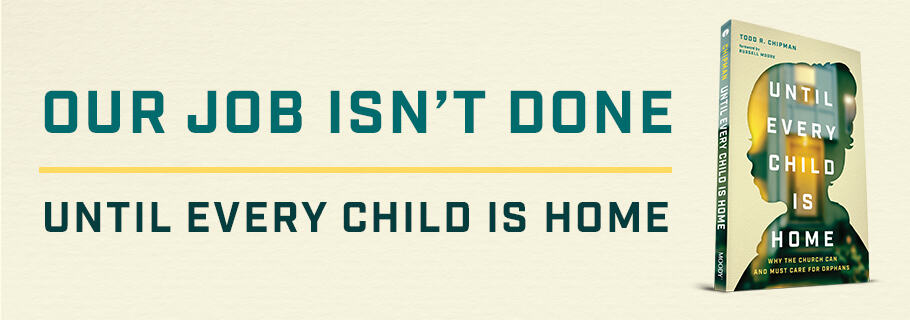 This week the blog is sponsored by Moody Publishers and this post is written by Todd Chipman from his book Until Every Child is Home: Why The Church Can and Must Care for Orphans. I wrote Until Every Child Is Home because I have seen that God’s instruction for His people to care for orphans is not only what we should be doing because He said to and because we find needy kids across the globe, but also because by doing good for kids we are doing good for ourselves. Orphanhood reflects the plight of lost humanity. Because of Adam and Eve’s sin in the garden in Genesis 3, every human is estranged (orphaned) from God. So there is a sense of irony when Jesus told His disciples, “I will not leave you as orphans.” He was talking in the context of His “farewell sermon,” which took place in the Upper Room on the Thursday night before His crucifixion. Here the apostle John recorded what may be Jesus’ most intimate teaching to His disciples. John began this section by showing Jesus washing the disciples’ feet in John 13 and following it with His prayer for them and the church in John 17. Jesus’ promise, “I will not leave you as orphans,” is the second of three references related to the orphan metaphor in John 14. Jesus began John 14 by speaking about His Father’s house. This house, Jesus stated, has many dwelling places. The purpose of Jesus’ departure was to go and prepare a place…]]>
This week the blog is sponsored by Moody Publishers and this post is written by Todd Chipman from his book Until Every Child is Home: Why The Church Can and Must Care for Orphans. I wrote Until Every Child Is Home because I have seen that God’s instruction for His people to care for orphans is not only what we should be doing because He said to and because we find needy kids across the globe, but also because by doing good for kids we are doing good for ourselves. Orphanhood reflects the plight of lost humanity. Because of Adam and Eve’s sin in the garden in Genesis 3, every human is estranged (orphaned) from God. So there is a sense of irony when Jesus told His disciples, “I will not leave you as orphans.” He was talking in the context of His “farewell sermon,” which took place in the Upper Room on the Thursday night before His crucifixion. Here the apostle John recorded what may be Jesus’ most intimate teaching to His disciples. John began this section by showing Jesus washing the disciples’ feet in John 13 and following it with His prayer for them and the church in John 17. Jesus’ promise, “I will not leave you as orphans,” is the second of three references related to the orphan metaphor in John 14. Jesus began John 14 by speaking about His Father’s house. This house, Jesus stated, has many dwelling places. The purpose of Jesus’ departure was to go and prepare a place…]]>
This week the blog is sponsored by Moody Publishers and this post is written by Todd Chipman from his book Until Every Child is Home: Why The Church Can and Must Care for Orphans.
I wrote Until Every Child Is Home because I have seen that God’s instruction for His people to care for orphans is not only what we should be doing because He said to and because we find needy kids across the globe, but also because by doing good for kids we are doing good for ourselves.
Orphanhood reflects the plight of lost humanity. Because of Adam and Eve’s sin in the garden in Genesis 3, every human is estranged (orphaned) from God. So there is a sense of irony when Jesus told His disciples, “I will not leave you as orphans.” He was talking in the context of His “farewell sermon,” which took place in the Upper Room on the Thursday night before His crucifixion. Here the apostle John recorded what may be Jesus’ most intimate teaching to His disciples. John began this section by showing Jesus washing the disciples’ feet in John 13 and following it with His prayer for them and the church in John 17. Jesus’ promise, “I will not leave you as orphans,” is the second of three references related to the orphan metaphor in John 14.
Jesus began John 14 by speaking about His Father’s house. This house, Jesus stated, has many dwelling places. The purpose of Jesus’ departure was to go and prepare a place for the disciples to be with Him. His upcoming death, resurrection, and ascension to heaven provides all believers access to God’s presence and guarantees a dwelling place with God for eternity. He told them, “Do not let your heart be troubled; believe in God, believe also in Me” (John 14:1). Why would Jesus tell His disciples not to be troubled? Because their hearts were on the verge of being troubled! Why? Because of what Jesus said in the following verses. His departure was a great threat to them. They felt, as He referenced in John 14:18, like orphans, left alone. But throughout John 14, Jesus was teaching the disciples that His death, resurrection, and ascension guaranteed that they would not be spiritual orphans. Jesus’ departure ensured that His followers would be welcomed by the Father in heaven. As disciples, we have that same guarantee.
The final reference to the orphan metaphor in is John 14:23: “If anyone loves Me, he will keep My word; and My Father will love him, and We will come to him and make Our abode with him.” The presence of a loving father and a dwelling place are exactly what every orphan needs and wants. Jesus assured His followers not only that they will have God as their Father but also that He and the Father will make their home with those who love Jesus. This is the reversal of the orphan condition in the grandest scale! It is impossible for the followers of Jesus to be spiritual orphans because they themselves are the abode of their heavenly Father.
So though John 14:18 is not a proof-text for orphan-care ministries, Jesus did use this metaphor to encourage His faithful followers as they felt orphaned by His departure. But the only way for them or any human to escape spiritual orphanhood was for Him to finish His mission of death, resurrection, and ascension to heaven. That is the gospel message proclaimed in the Great Commission. Jesus’ death, resurrection, and ascension enable believers to call God our heavenly Father and provide for us a forever home with God. The Great Commission was given because of humanity’s orphaned condition. As we speak God’s saving grace and open our homes to needy children, we obey the Great Commission to make disciples of all nations.
I want local churches to see that by coming together to meet the needs of vulnerable kids, we advance our church ministries. Orphan care is strategic, compelling work, a means and not just a goal. Orphan care ministries do not suck the life out of a church—as some might think they would. Rather, foster-care, adoption, and support ministries enhance the general ministry of our local church.
Adapted from Until Every Child is Home: Why the Church Can and Must Care for Orphans by Todd Chipman (©2019). Published by Moody Publishers. Used by permission.
]]> A couple of weeks ago someone captured a photograph of a smiling or sneering, mocking or awkward young man standing face-to-face with a peacemaking or threatening, respectful or bad-mannered older man. This photo was posted to Twitter. And you know what happened next. But even though you know what happened, it’s worth considering why it happened. Every medium—every form of communication—enables or even promotes certain virtues and certain vices. That’s not to say any medium is intrinsically good or intrinsically evil, but that each comes with its own benefits and drawbacks, its own ways of promoting both helpful and sinful behaviors. Such is life on this side of Genesis 3. As we use our various media, we need to consider what helpful behaviors they promote and what sinful behaviors they enable. The degree to which we are aware of each predicts the degree to which we’ll use our media for the good or the harm of others. The photo in question was shared through the medium of Twitter. What virtues and vices are built into Twitter? At the top of both lists is urgency. It’s fast—so fast that people in New York City can read about an earthquake before they feel the ground begin to tremble, and so fast that we can broadcast full-out lies or half-formed judgments before we’ve got any true assessment of the facts. What we love about Twitter is what we ought to fear about it. While it allows us to stay tuned to current events like never before, it also…]]>
A couple of weeks ago someone captured a photograph of a smiling or sneering, mocking or awkward young man standing face-to-face with a peacemaking or threatening, respectful or bad-mannered older man. This photo was posted to Twitter. And you know what happened next. But even though you know what happened, it’s worth considering why it happened. Every medium—every form of communication—enables or even promotes certain virtues and certain vices. That’s not to say any medium is intrinsically good or intrinsically evil, but that each comes with its own benefits and drawbacks, its own ways of promoting both helpful and sinful behaviors. Such is life on this side of Genesis 3. As we use our various media, we need to consider what helpful behaviors they promote and what sinful behaviors they enable. The degree to which we are aware of each predicts the degree to which we’ll use our media for the good or the harm of others. The photo in question was shared through the medium of Twitter. What virtues and vices are built into Twitter? At the top of both lists is urgency. It’s fast—so fast that people in New York City can read about an earthquake before they feel the ground begin to tremble, and so fast that we can broadcast full-out lies or half-formed judgments before we’ve got any true assessment of the facts. What we love about Twitter is what we ought to fear about it. While it allows us to stay tuned to current events like never before, it also…]]>
A couple of weeks ago someone captured a photograph of a smiling or sneering, mocking or awkward young man standing face-to-face with a peacemaking or threatening, respectful or bad-mannered older man. This photo was posted to Twitter. And you know what happened next. But even though you know what happened, it’s worth considering why it happened.
Every medium—every form of communication—enables or even promotes certain virtues and certain vices. That’s not to say any medium is intrinsically good or intrinsically evil, but that each comes with its own benefits and drawbacks, its own ways of promoting both helpful and sinful behaviors. Such is life on this side of Genesis 3. As we use our various media, we need to consider what helpful behaviors they promote and what sinful behaviors they enable. The degree to which we are aware of each predicts the degree to which we’ll use our media for the good or the harm of others.
The photo in question was shared through the medium of Twitter. What virtues and vices are built into Twitter? At the top of both lists is urgency. It’s fast—so fast that people in New York City can read about an earthquake before they feel the ground begin to tremble, and so fast that we can broadcast full-out lies or half-formed judgments before we’ve got any true assessment of the facts. What we love about Twitter is what we ought to fear about it. While it allows us to stay tuned to current events like never before, it also promotes urgency more than thoughtfulness, haste more than contemplation. Twitter’s great strength is its great weakness.
When that photo swept across the world, most of us felt immediate affinity toward one of the people in the photo. We were immediately tempted to take sides for one and against the other. We saw what we wanted to see. (Which, I think, is a matter for each of us to consider and to address before the Lord. What was it about one that, at a glance, made us assume he was the offender? What was it about the other that, at a glance, made us assume he was the offended?) But Twitter tempted us to go farther than our feelings. It enabled us to broadcast our hasty conclusions, to respond before gaining access to facts, to speak before hearing from the people involved and the witnesses around. It tempted us to externalize our impressions and to do so before an audience of hundreds or thousands or hundreds of thousands.
Our sinfulness compels us to jump to conclusions; our technologies enable us to broadcast them. While we are all tempted to make hasty judgments privately, those with Twitter accounts are tempted to do so publicly. This creates a kind of perfect—or extremely imperfect—storm. Those who jump to conclusions and speak them hastily not only sin, but also draw others into their sin. After all, they don’t just state bare facts, but pass moral judgment and call for others to do the same. They use their influence to influence others to make the leap with them.
And, this, I think, bears special consideration among Christians: it’s a sin to jump to conclusions and a double-sin to do so publicly. Those who rush to judgment and disseminate disinformation compound their sin. If those who teach will be judged with greater strictness, surely too will those who set out to gain a following. With influence comes responsibility.
Media ecologists like to remind us that our technologies are extensions of ourselves and our abilities, so that the hammer is an extension of the arm and the bicycle is an extension of the feet. We best understand Twitter as an extension of the tongue—and the Bible practically begs us to read its warnings about the power of the tongue to build up or tear down, to worship God or destroy our neighbor. It’s stuffed full of warnings about the evil of our hearts and the power of our words. It instructs us in our responsibility to moderate our speech (and our tweets), to guard against speaking hastily, and to determine never to pronounce judgment rashly. It demands we see and admit that Twitter’s great strength is its great weakness and that we need to be careful—so careful—to use our abilities for good rather than evil. Amid all our advanced technologies, we cannot and must not forget our basic Christianity.
]]> This week’s Free Stuff Friday is sponsored by The Good Book Company who also sponsored the blog this week. They have 5 packages of their latest releases to give away, which means 5 winners will each receive the following titles: Seven Dangers Facing Your Church, by Juan Sanchez Our culture is changing, and the church seems to be under increasing pressure. But the dangers we’re facing are not new—and God’s word shows us how to meet them head-on. In Seven Dangers Facing Your Church, discover how Jesus’ messages to seven first-century churches in Revelation 2 – 3 is his message to your church today too. This is a book for every pastor and elder, and anyone committed to playing their part in helping their local church thrive in an increasingly hostile environment. Together, you can live as Christ’s faithful, hope-filled people in a changing culture. Women and God: Hard Questions, Beautiful Truth, by Kathleen Nielson In this warm, conversational and sympathetic book, Kathleen Nielson looks at what the Bible really says about women and what it reveals about God’s attitude towards them. She asks the hard questions about the Old Testament Law, the role of women in marriage and the role of women in the church, consistently pointing us to God’s word and his perfectly created order. Women and men of all backgrounds, views, and ages will find Women & God: Hard Questions, Beautiful Truth to be a valuable book. Pastors and Elders will find it useful as they work out how to faithfully lead…]]>
This week’s Free Stuff Friday is sponsored by The Good Book Company who also sponsored the blog this week. They have 5 packages of their latest releases to give away, which means 5 winners will each receive the following titles: Seven Dangers Facing Your Church, by Juan Sanchez Our culture is changing, and the church seems to be under increasing pressure. But the dangers we’re facing are not new—and God’s word shows us how to meet them head-on. In Seven Dangers Facing Your Church, discover how Jesus’ messages to seven first-century churches in Revelation 2 – 3 is his message to your church today too. This is a book for every pastor and elder, and anyone committed to playing their part in helping their local church thrive in an increasingly hostile environment. Together, you can live as Christ’s faithful, hope-filled people in a changing culture. Women and God: Hard Questions, Beautiful Truth, by Kathleen Nielson In this warm, conversational and sympathetic book, Kathleen Nielson looks at what the Bible really says about women and what it reveals about God’s attitude towards them. She asks the hard questions about the Old Testament Law, the role of women in marriage and the role of women in the church, consistently pointing us to God’s word and his perfectly created order. Women and men of all backgrounds, views, and ages will find Women & God: Hard Questions, Beautiful Truth to be a valuable book. Pastors and Elders will find it useful as they work out how to faithfully lead…]]>
This week’s Free Stuff Friday is sponsored by The Good Book Company who also sponsored the blog this week. They have 5 packages of their latest releases to give away, which means 5 winners will each receive the following titles:
Seven Dangers Facing Your Church, by Juan Sanchez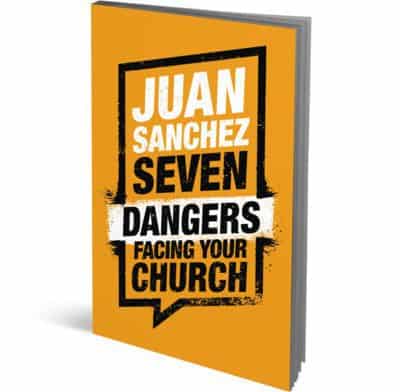
Our culture is changing, and the church seems to be under increasing pressure. But the dangers we’re facing are not new—and God’s word shows us how to meet them head-on. In Seven Dangers Facing Your Church, discover how Jesus’ messages to seven first-century churches in Revelation 2 – 3 is his message to your church today too.
This is a book for every pastor and elder, and anyone committed to playing their part in helping their local church thrive in an increasingly hostile environment. Together, you can live as Christ’s faithful, hope-filled people in a changing culture.
Women and God: Hard Questions, Beautiful Truth, by Kathleen Nielson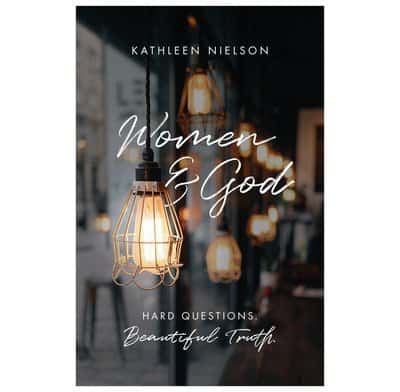
In this warm, conversational and sympathetic book, Kathleen Nielson looks at what the Bible really says about women and what it reveals about God’s attitude towards them. She asks the hard questions about the Old Testament Law, the role of women in marriage and the role of women in the church, consistently pointing us to God’s word and his perfectly created order.
Women and men of all backgrounds, views, and ages will find Women & God: Hard Questions, Beautiful Truth to be a valuable book. Pastors and Elders will find it useful as they work out how to faithfully lead a united worshiping community under the authority of Christ and in accordance with Scripture. It is also ideal for use in women’s ministry as women seek to live and act according to God’s will.
Take Heart, by Matt Chandler
Christendom is dead. And that’s a good thing.
The Christian culture that has underpinned Western society for centuries has been eroded. We’re now at the point where to disagree with people on issues such as marriage and sexuality, is seen as hateful. Christians are no longer seen as honorable but as bigots. But history testifies that the more people try to destroy Christianity, the more it grows. So we are entering an exciting period of time because we’re back in the place where Christ’s church can thrive – at the margins of society.
In Take Heart, Matt Chandler shows us we need Christian courage like never before, and how to live with compassion and conviction, able to look around positively and reach out confidently.
Life in the Wild, by Dan DeWitt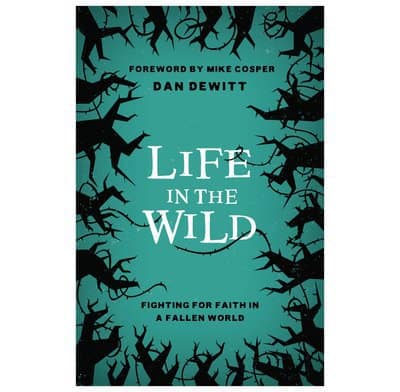
Life In The Wild offers real and rugged answers in life’s dark places. Discover how to live with hope in a fallen, messed- up, “wild” world, and be encouraged.
Walking through Genesis 3, Dan DeWitt shows us how we can look at this world realistically but without despairing, as we wait for God to keep his promise to bring us out of the wild and into his new creation. We are living with the effects of the fall (we are messed-up people living in a messed-up place) – but God’s promise, made in Eden, serves as a beacon of light to guide our steps in this fallen world.
The Porn Problem, by Vaughan Roberts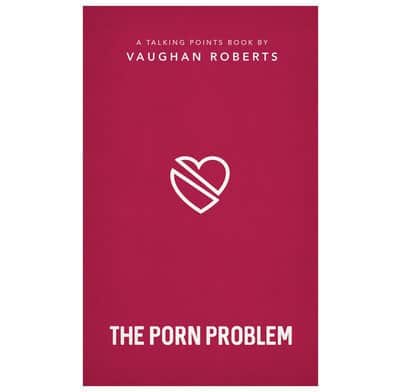
Pornography is no longer universally looked down on as bad or unhelpful but is often seen as something to enjoy without guilt. Christians, however, work to a different agenda—one set by the Bible’s revelation of the true meaning of sex and relationships.
The Porn Problem surveys the Christian worldview and applies it to the complex issues surrounding pornography, helping Christians know how to think and talk about pornography with biblical conviction, and compassionate understanding for those influenced by it.
Follow The Good Book Company on Facebook and Twitter for a chance to keep up with their blog, latest news, new releases, monthly giveaways and more.
Enter Here
Again, there are five packages to win. And all you need to do to enter the draw is to drop your name and email address in the form below.
Giveaway Rules: You may enter one time. As soon as the winners have been chosen, all names and addresses will be immediately and permanently erased. Winners will be notified by email. The giveaway closes Saturday at noon. If you are viewing this through email, click to visit my site and enter there.
]]> I am down South near Atlanta finishing up a marriage retreat. Lord willing I’ll be back home this evening. If you’re in the international terminal at ATL this afternoon, let me know and we’ll grab a coffee. There are just a few Kindle deals today but they are on good books that rarely go on sale. The Universe Should Not Exist “Christian Smorra, a researcher at CERN, said, ‘All of our observations find a complete symmetry between matter and antimatter, which is why the universe should not actually exist.'” That blows my mind but is still plenty interesting. Communism’s Bloody Century This is a long but important and worthwhile read. “A century ago this week, communism took over the Russian empire, the world’s largest state at the time. Leftist movements of various sorts had been common in European politics long before the revolution of Oct. 25, 1917 (which became Nov. 7 in the reformed Russian calendar), but Vladimir Lenin and his Bolsheviks were different. They were not merely fanatical in their convictions but flexible in their tactics—and fortunate in their opponents.” What It’s Like to Learn You’re Going to Die This is from a non-Christian perspective. “Nessa Coyle calls it ‘the existential slap’—that moment when a dying person first comprehends, on a gut level, that death is close. For many, the realization comes suddenly: ‘The usual habit of allowing thoughts of death to remain in the background is now impossible,’ Coyle, a nurse and palliative-care pioneer, has written. ‘Death can no longer be denied.'” The…]]>
I am down South near Atlanta finishing up a marriage retreat. Lord willing I’ll be back home this evening. If you’re in the international terminal at ATL this afternoon, let me know and we’ll grab a coffee. There are just a few Kindle deals today but they are on good books that rarely go on sale. The Universe Should Not Exist “Christian Smorra, a researcher at CERN, said, ‘All of our observations find a complete symmetry between matter and antimatter, which is why the universe should not actually exist.'” That blows my mind but is still plenty interesting. Communism’s Bloody Century This is a long but important and worthwhile read. “A century ago this week, communism took over the Russian empire, the world’s largest state at the time. Leftist movements of various sorts had been common in European politics long before the revolution of Oct. 25, 1917 (which became Nov. 7 in the reformed Russian calendar), but Vladimir Lenin and his Bolsheviks were different. They were not merely fanatical in their convictions but flexible in their tactics—and fortunate in their opponents.” What It’s Like to Learn You’re Going to Die This is from a non-Christian perspective. “Nessa Coyle calls it ‘the existential slap’—that moment when a dying person first comprehends, on a gut level, that death is close. For many, the realization comes suddenly: ‘The usual habit of allowing thoughts of death to remain in the background is now impossible,’ Coyle, a nurse and palliative-care pioneer, has written. ‘Death can no longer be denied.'” The…]]>
I am down South near Atlanta finishing up a marriage retreat. Lord willing I’ll be back home this evening. If you’re in the international terminal at ATL this afternoon, let me know and we’ll grab a coffee.
There are just a few Kindle deals today but they are on good books that rarely go on sale.
The Universe Should Not Exist
“Christian Smorra, a researcher at CERN, said, ‘All of our observations find a complete symmetry between matter and antimatter, which is why the universe should not actually exist.'” That blows my mind but is still plenty interesting.
Communism’s Bloody Century
This is a long but important and worthwhile read. “A century ago this week, communism took over the Russian empire, the world’s largest state at the time. Leftist movements of various sorts had been common in European politics long before the revolution of Oct. 25, 1917 (which became Nov. 7 in the reformed Russian calendar), but Vladimir Lenin and his Bolsheviks were different. They were not merely fanatical in their convictions but flexible in their tactics—and fortunate in their opponents.”
What It’s Like to Learn You’re Going to Die
This is from a non-Christian perspective. “Nessa Coyle calls it ‘the existential slap’—that moment when a dying person first comprehends, on a gut level, that death is close. For many, the realization comes suddenly: ‘The usual habit of allowing thoughts of death to remain in the background is now impossible,’ Coyle, a nurse and palliative-care pioneer, has written. ‘Death can no longer be denied.'”
The Relationship Between Sin and Work
“The first chapters of Genesis are important to Christians for many reasons. Genesis 1-2 tells us what God originally intended for us as His creatures. Genesis 3 is vital in telling us what went wrong in the world. In short, the world has been cursed by the fall of Adam into sin. Interestingly, Adam’s sin involved a failure in his work. Called to exercise dominion over the other creatures, he instead permitted himself and Eve to be ruled by the crafty serpent.”
What Does it Mean to Be Missional? (Video)
Dr. Elias Medeiros talks about what it means to be missional.
Ask Ligonier
Here is an incredible new resource. “Maybe you’re teaching a lesson tomorrow. Maybe you just need a place to start. It’s good to know that you can always ask Ligonier. For over 40 years, Christians have been looking to R.C. Sproul and Ligonier Ministries for clear and helpful answers to theological questions. Now you can ask those questions as they arise, confident that our team will quickly provide a clear and concise answer. When you have a question, just ask Ligonier.”
We Don’t Need the iPhone X
It has been interesting to chart people’s growing frustration with the current state of mobile technology. (There may be a bad word or two in this one.)
Flashback: A Quiz on the Doctrine of Scripture
How well do you know the doctrine of the Scripture? How well do you know what the Bible tells us about the Bible? This short thirty-three question quiz is designed to help you find out.
95 eBooks Sale
My thanks goes to Zondervan for sponsoring the blog this week.
]]> It requires a bit of a time commitment, but you may enjoy this video on Why Bible Typography Matters. And, believe it or not, it actually does. I appreciate this pastor’s view that what is happening in the church today might be able to be compared to a baseball team Rebuilding in the Off-Season. “The church in North America has simultaneously become both fat and malnourished, a feat that would be impressive if it weren’t so tragic.” This is from The Banner of Truth: Shall We Read Jonathan Edwards? The answer is a resounding yes. Speaking of Jonathan Edwards, Logos just recently released the Yale edition of The Works of Jonathan Edwards, an incredible body of work. Be sure to watch the video to see how you can put the resources to work for you. Russell Moore did a great job on this artice: What Will Matter to Evangelicals in 2016. Thanks to Tabletalk for sponsoring the blog this week with their article Tabletalk Avoids Shallow Doctrine. Fifty Shades of Genesis 3:16: “The popularity of Fifty Shades of Grey doesn’t surprise me, because God predicted it in Genesis 3. The woman’s desire or strong craving (addiction if you will) will be for the man, and he will rule over her. THAT is why Fifty Shades of Grey, the Twilight Series, and countless other lesser known masochistic ‘romance’ novels have flourished over the years.” Truth needs to be baptized into love if it is to possess the charm of loveliness.]]>
It requires a bit of a time commitment, but you may enjoy this video on Why Bible Typography Matters. And, believe it or not, it actually does. I appreciate this pastor’s view that what is happening in the church today might be able to be compared to a baseball team Rebuilding in the Off-Season. “The church in North America has simultaneously become both fat and malnourished, a feat that would be impressive if it weren’t so tragic.” This is from The Banner of Truth: Shall We Read Jonathan Edwards? The answer is a resounding yes. Speaking of Jonathan Edwards, Logos just recently released the Yale edition of The Works of Jonathan Edwards, an incredible body of work. Be sure to watch the video to see how you can put the resources to work for you. Russell Moore did a great job on this artice: What Will Matter to Evangelicals in 2016. Thanks to Tabletalk for sponsoring the blog this week with their article Tabletalk Avoids Shallow Doctrine. Fifty Shades of Genesis 3:16: “The popularity of Fifty Shades of Grey doesn’t surprise me, because God predicted it in Genesis 3. The woman’s desire or strong craving (addiction if you will) will be for the man, and he will rule over her. THAT is why Fifty Shades of Grey, the Twilight Series, and countless other lesser known masochistic ‘romance’ novels have flourished over the years.” Truth needs to be baptized into love if it is to possess the charm of loveliness.]]>
It requires a bit of a time commitment, but you may enjoy this video on Why Bible Typography Matters. And, believe it or not, it actually does.
I appreciate this pastor’s view that what is happening in the church today might be able to be compared to a baseball team Rebuilding in the Off-Season. “The church in North America has simultaneously become both fat and malnourished, a feat that would be impressive if it weren’t so tragic.”
This is from The Banner of Truth: Shall We Read Jonathan Edwards? The answer is a resounding yes.
Speaking of Jonathan Edwards, Logos just recently released the Yale edition of The Works of Jonathan Edwards, an incredible body of work. Be sure to watch the video to see how you can put the resources to work for you.
Russell Moore did a great job on this artice: What Will Matter to Evangelicals in 2016.
Thanks to Tabletalk for sponsoring the blog this week with their article Tabletalk Avoids Shallow Doctrine.
Fifty Shades of Genesis 3:16: “The popularity of Fifty Shades of Grey doesn’t surprise me, because God predicted it in Genesis 3. The woman’s desire or strong craving (addiction if you will) will be for the man, and he will rule over her. THAT is why Fifty Shades of Grey, the Twilight Series, and countless other lesser known masochistic ‘romance’ novels have flourished over the years.”
]]> This is the seventh installment in a series on theological terms. See previous posts on the terms theology, Trinity, creation, man, Fall, and common grace. The word “sin” first appears in the Bible when God speaks to Cain, warning him not to give in to his anger against his brother: “If you do not do well, sin is crouching at the door. Its desire is for you, but you must rule over it” (Genesis 4:7). This is not the first sin, though. Romans 5:12-14 teaches that Adam’s fall was also a sin and, of course, the origin of all human sin. But what precisely is sin? The Westminster Shorter Catechism says it well: “Sin is any want of conformity unto, or transgression of, the law of God.” In Genesis 3 this involves Adam and Eve eating the fruit of the tree of the knowledge of good and evil despite God’s clear prohibition against doing so. In chapter 4 it takes the form of murder when Cain kills Abel. Through the rest of the Bible we see countless other expressions of sin: lying, stealing, idolatry, and impatience and anything else the heart of man can concoct. But what is the root that unites these behaviors? What is it about these actions that makes them sinful? Any time we see sin, whether in Scripture or in our lives today, the heart of it is willful contempt for God. As John Piper writes, The exceeding evil of sin is not the harm it does to us or to…]]>
This is the seventh installment in a series on theological terms. See previous posts on the terms theology, Trinity, creation, man, Fall, and common grace. The word “sin” first appears in the Bible when God speaks to Cain, warning him not to give in to his anger against his brother: “If you do not do well, sin is crouching at the door. Its desire is for you, but you must rule over it” (Genesis 4:7). This is not the first sin, though. Romans 5:12-14 teaches that Adam’s fall was also a sin and, of course, the origin of all human sin. But what precisely is sin? The Westminster Shorter Catechism says it well: “Sin is any want of conformity unto, or transgression of, the law of God.” In Genesis 3 this involves Adam and Eve eating the fruit of the tree of the knowledge of good and evil despite God’s clear prohibition against doing so. In chapter 4 it takes the form of murder when Cain kills Abel. Through the rest of the Bible we see countless other expressions of sin: lying, stealing, idolatry, and impatience and anything else the heart of man can concoct. But what is the root that unites these behaviors? What is it about these actions that makes them sinful? Any time we see sin, whether in Scripture or in our lives today, the heart of it is willful contempt for God. As John Piper writes, The exceeding evil of sin is not the harm it does to us or to…]]>
This is the seventh installment in a series on theological terms. See previous posts on the terms theology, Trinity, creation, man, Fall, and common grace.
The word “sin” first appears in the Bible when God speaks to Cain, warning him not to give in to his anger against his brother: “If you do not do well, sin is crouching at the door. Its desire is for you, but you must rule over it” (Genesis 4:7). This is not the first sin, though. Romans 5:12-14 teaches that Adam’s fall was also a sin and, of course, the origin of all human sin.
But what precisely is sin? The Westminster Shorter Catechism says it well: “Sin is any want of conformity unto, or transgression of, the law of God.” In Genesis 3 this involves Adam and Eve eating the fruit of the tree of the knowledge of good and evil despite God’s clear prohibition against doing so. In chapter 4 it takes the form of murder when Cain kills Abel. Through the rest of the Bible we see countless other expressions of sin: lying, stealing, idolatry, and impatience and anything else the heart of man can concoct. But what is the root that unites these behaviors? What is it about these actions that makes them sinful?
Any time we see sin, whether in Scripture or in our lives today, the heart of it is willful contempt for God. As John Piper writes,
The exceeding evil of sin is not the harm it does to us or to others (though that is great!). The wickedness of sin is owing to the implicit disdain for God. When David committed adultery with Bathsheba, and even had her husband killed, what did God say to him through the prophet Nathan? He did not remind the king that marriage is inviolable or that human life is sacred. He said, “You have despised me” (2 Samuel 12:10). (Desiring God, 58)
Any sinful attitude or action, whether lying or stealing or whether the adultery and murder we see in David’s life, is simply the fruit of sin. But the truest and darkest evil lies in the root of it all–a willful, rebellious contempt for God.
]]> This is now the fifth installment in a series that takes a brief look at important theological terms. You can see previous posts on the terms theology, Trinity, creation, and man. Today it continues by looking to the Fall. What do Christians mean when we talk about “the Fall” (note the capital F)? “The Fall” refers to a specific, historic event which occured in the lives of the very first human beings in the Garden of Eden. It has forever changed creation and the human race. The event is described in Genesis 3 and its effects are seen throughout Scripture and the rest of human history. Bruce Waltke provides a helpful summary of what occurred: Adam and Eve were created in a state of righteousness (accepted with God) and innocence (a state of untested righteousness). They would have continued in a state of blessed sanctity with God and of enjoying life in the garden if they had obeyed God and not eaten the forbidden fruit. … By Adam and Eve’s failure to trust the goodness of God’s character and the truthfulness of his word, they disobey and instantaneously “fall” from their state of bliss in the garden into a tragic state of irreversible sin and death and banishment from the garden. Much more could be said about how this “fall” introduced the human race to original sin and total depravity, how it led to the cursing of all creation, and how it set the stage for the glorious redemption of all things in Christ Jesus.…]]>
This is now the fifth installment in a series that takes a brief look at important theological terms. You can see previous posts on the terms theology, Trinity, creation, and man. Today it continues by looking to the Fall. What do Christians mean when we talk about “the Fall” (note the capital F)? “The Fall” refers to a specific, historic event which occured in the lives of the very first human beings in the Garden of Eden. It has forever changed creation and the human race. The event is described in Genesis 3 and its effects are seen throughout Scripture and the rest of human history. Bruce Waltke provides a helpful summary of what occurred: Adam and Eve were created in a state of righteousness (accepted with God) and innocence (a state of untested righteousness). They would have continued in a state of blessed sanctity with God and of enjoying life in the garden if they had obeyed God and not eaten the forbidden fruit. … By Adam and Eve’s failure to trust the goodness of God’s character and the truthfulness of his word, they disobey and instantaneously “fall” from their state of bliss in the garden into a tragic state of irreversible sin and death and banishment from the garden. Much more could be said about how this “fall” introduced the human race to original sin and total depravity, how it led to the cursing of all creation, and how it set the stage for the glorious redemption of all things in Christ Jesus.…]]>
This is now the fifth installment in a series that takes a brief look at important theological terms. You can see previous posts on the terms theology, Trinity, creation, and man. Today it continues by looking to the Fall.
What do Christians mean when we talk about “the Fall” (note the capital F)?
“The Fall” refers to a specific, historic event which occured in the lives of the very first human beings in the Garden of Eden. It has forever changed creation and the human race.
The event is described in Genesis 3 and its effects are seen throughout Scripture and the rest of human history. Bruce Waltke provides a helpful summary of what occurred:
Adam and Eve were created in a state of righteousness (accepted with God) and innocence (a state of untested righteousness). They would have continued in a state of blessed sanctity with God and of enjoying life in the garden if they had obeyed God and not eaten the forbidden fruit. … By Adam and Eve’s failure to trust the goodness of God’s character and the truthfulness of his word, they disobey and instantaneously “fall” from their state of bliss in the garden into a tragic state of irreversible sin and death and banishment from the garden.
Much more could be said about how this “fall” introduced the human race to original sin and total depravity, how it led to the cursing of all creation, and how it set the stage for the glorious redemption of all things in Christ Jesus. But in its essence “the Fall” refers to the loss of man’s righteousness and bliss before God, his newfound bondage to sin, the inevitability of death, and banishment from the presence of God. All of this came as a consequence of man’s disobedience and his distrust of both the character and word of God. Fall is a small word with a great depth of meaning.
]]> I’ve been at this blogging thing for quite a long time now—a bit over 9 years. I’ve been at the daily blogging thing for almost as long. This means that I’ve got an extensive backlist of articles from years gone by. I thought it might be fun to pull out some of the articles I wrote in previous Februarys, stretching all the way back to 2004. 2011 Running the Race and Finishing the Race – This is a two-part biographical sketch of Eric Liddell that was based on an evening service message at my church. A Short History of Communication – This article was a combination of writing on technology and preaching through Genesis 3. Because those things are so obviously similar… 2010 On Endorsements – I wrote this to answer questions people had about how book endorsements work. I should probably revisit this topic; when it comes to endorsements it’s usually helpful to understand that most of the blurbs you read were written without the person actually reading the book he’s commending. 2009 25 Stupendously Boring Things You Didn’t Want to Know About Me – I am an amazingly boring person, and I guess this post proves it. This was my response to a Facebook meme. 2008 Is Forgiveness Conditional or Unconditional? – The conditional or unconditional nature of forgiveness is always an interesting subject to discuss. This was my take on it a few years ago; I think it still summarizes my view. 2007 The Christian and Birth Control, Parts 1 and 2…]]>
I’ve been at this blogging thing for quite a long time now—a bit over 9 years. I’ve been at the daily blogging thing for almost as long. This means that I’ve got an extensive backlist of articles from years gone by. I thought it might be fun to pull out some of the articles I wrote in previous Februarys, stretching all the way back to 2004. 2011 Running the Race and Finishing the Race – This is a two-part biographical sketch of Eric Liddell that was based on an evening service message at my church. A Short History of Communication – This article was a combination of writing on technology and preaching through Genesis 3. Because those things are so obviously similar… 2010 On Endorsements – I wrote this to answer questions people had about how book endorsements work. I should probably revisit this topic; when it comes to endorsements it’s usually helpful to understand that most of the blurbs you read were written without the person actually reading the book he’s commending. 2009 25 Stupendously Boring Things You Didn’t Want to Know About Me – I am an amazingly boring person, and I guess this post proves it. This was my response to a Facebook meme. 2008 Is Forgiveness Conditional or Unconditional? – The conditional or unconditional nature of forgiveness is always an interesting subject to discuss. This was my take on it a few years ago; I think it still summarizes my view. 2007 The Christian and Birth Control, Parts 1 and 2…]]>
I’ve been at this blogging thing for quite a long time now—a bit over 9 years. I’ve been at the daily blogging thing for almost as long. This means that I’ve got an extensive backlist of articles from years gone by. I thought it might be fun to pull out some of the articles I wrote in previous Februarys, stretching all the way back to 2004.
2011
Running the Race and Finishing the Race – This is a two-part biographical sketch of Eric Liddell that was based on an evening service message at my church.
A Short History of Communication – This article was a combination of writing on technology and preaching through Genesis 3. Because those things are so obviously similar…
2010
On Endorsements – I wrote this to answer questions people had about how book endorsements work. I should probably revisit this topic; when it comes to endorsements it’s usually helpful to understand that most of the blurbs you read were written without the person actually reading the book he’s commending.
2009
25 Stupendously Boring Things You Didn’t Want to Know About Me – I am an amazingly boring person, and I guess this post proves it. This was my response to a Facebook meme.
2008
Is Forgiveness Conditional or Unconditional? – The conditional or unconditional nature of forgiveness is always an interesting subject to discuss. This was my take on it a few years ago; I think it still summarizes my view.
2007
The Christian and Birth Control, Parts 1 and 2 – I think I probably wrote this one largely to sharpen my own thinking on the subject.
Defining Discernment – This was written almost a year before The Discipline of Spiritual Discernment released, which means I had probably just written something like this as a chapter in the book. I sometimes cheat like that.
2006
A Valentine’s Day Reflection – “Valentine’s Day may be a contrived holiday. There is no objective reason that I should celebrate love in a special way today rather than yesterday or tomorrow. But if this is a day where people celebrate love, should not I, as a grateful husband, celebrate my wife? Should I not model to my children a love, a passion, a joy in my wife? Should I not reflect today on my intoxication with her love? Should I not praise, honor and bless her for being just who she is: a precious, beautiful, excellent gift from God?”
Submission – Does It Precede the Fall? – Articles like this one have always surprised me in the venomous responses they generate (though many of those responses are on other blogs more than in the comments section). It all seems pretty straightforward to me and it took me some time to understand how other people could view the issue so differently.
2005
Total Depravity: The Great Equalizer – This was one of those articles that for some reason was really important in my spiritual development. (It also reflects my old and embarrassing habit of using the word “for” too often!)
2004
Unbelievers Must Be Stupid… – I sounded mad: “If I were to use the average church outreach program as a guide, I would have to assume that the average non-Christian is lazy, stupid, ignorant, unwilling to learn and suffering from attention deficit disorder. He has two kids that he loves but never spends any time with, leaving him racked with guilt. He is trying to hold a marriage together but his wife ranks a distant second to his career.”
]]>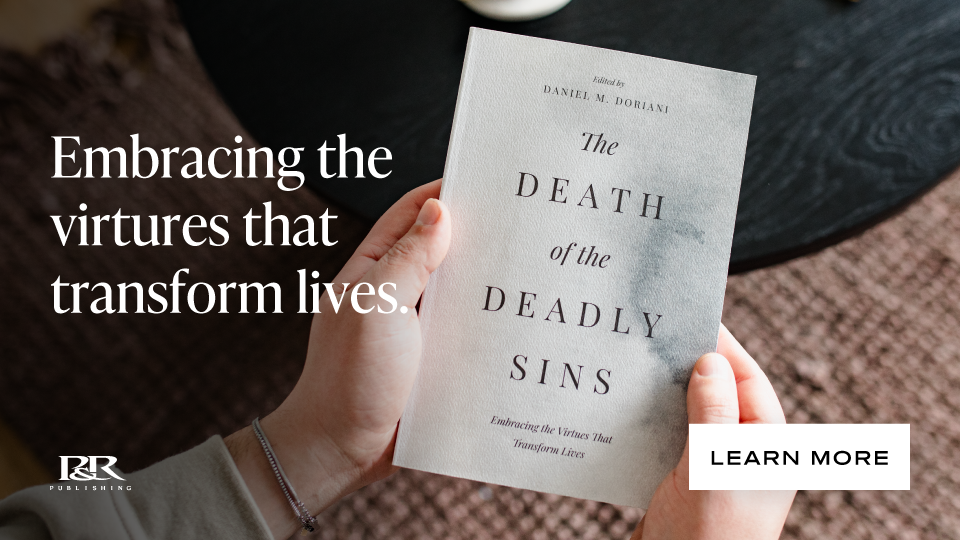 ]]>
]]>Coming from quite a small church, it was an interesting experience to be on a campus with thousands and thousands of people milling about. I guess it would be simple enough to be just a face in the crowd, but it certainly seemed like there was lots of true fellowship going on there. It looks like the church does a good job of allowing people to be part of something small, even with such a huge congregation.
And that was that. We swung by the church quickly to say hello to Dr. MacArthur and then had lunch with Travis Allen and his family (Travis is involved in running the GTY web site and blog).
Somehow, in the middle of it all, I began to think of this quote from Michael Emlet. I want to remember this one in the midst of studying and speaking and preaching. It is a good corrective; a good warning.
A temptation in ministry is to think that just because we prepared a Bible study, a sermon, or a discipleship appointment (or wrote a book like this!), we are deeply engaging with the God of the universe. But that’s not necessarily true. It’s easy in ministry to live more as a ‘pipe’ than a ‘reservoir.’ That is, it’s easy to live merely as a conduit to others of the transforming truths of God’s Word, rather than as a changed and transformed reservoir who overflows with lived-out gospel truth. You wouldn’t imagine cooking meal after meal for your family without sitting down to enjoy that nourishment, would you? To paraphrase James 1:22, let’s not merely be hearers or speakers or counselors of the Word, but doers, first and foremost.
Those are words I need to remember.
Tomorrow I’m off to The Master’s College to lead chapel and do a few other things. Should be fun!
]]> I know that it is bad form to turn a sermon into a blog post, but I’m going to do it anyway (hey, it’s my blog!). Yesterday I preached from Genesis 3 and found great joy in going from the garden to the cross. There are lots of ways we can do this, but I chose to do it through the cherubim. Can I ask you to read along? I think you’ll find this a real encouragement. By the end of Genesis chapter 3, the Lord has passed judgment on the serpent, on the woman and on Adam and he has banished them from the Garden of Eden–banished them from his presence and from the place where they could have access to the tree of life from which they could eat and live forever as sinful immortal beings. Before the entrance, to ensure they could never return to the garden, he placed a flaming sword and the cherubim. What is a cherubim? Cherubim have gotten a bit of a bad rap, I think. When we think of cherubs we tend to think of cute, pudgy little angels that help children go to sleep. According to the Bible, though, the cherubim are terrifying warriors who are guardians of the things of God. They are described as having the general appearance of men, but also of having the face of a lion or the face of an eagle—fierce creatures, predators. They have wings—sometimes two pairs and sometimes just one. These are creatures who are created specifically to…]]>
I know that it is bad form to turn a sermon into a blog post, but I’m going to do it anyway (hey, it’s my blog!). Yesterday I preached from Genesis 3 and found great joy in going from the garden to the cross. There are lots of ways we can do this, but I chose to do it through the cherubim. Can I ask you to read along? I think you’ll find this a real encouragement. By the end of Genesis chapter 3, the Lord has passed judgment on the serpent, on the woman and on Adam and he has banished them from the Garden of Eden–banished them from his presence and from the place where they could have access to the tree of life from which they could eat and live forever as sinful immortal beings. Before the entrance, to ensure they could never return to the garden, he placed a flaming sword and the cherubim. What is a cherubim? Cherubim have gotten a bit of a bad rap, I think. When we think of cherubs we tend to think of cute, pudgy little angels that help children go to sleep. According to the Bible, though, the cherubim are terrifying warriors who are guardians of the things of God. They are described as having the general appearance of men, but also of having the face of a lion or the face of an eagle—fierce creatures, predators. They have wings—sometimes two pairs and sometimes just one. These are creatures who are created specifically to…]]>
I know that it is bad form to turn a sermon into a blog post, but I’m going to do it anyway (hey, it’s my blog!). Yesterday I preached from Genesis 3 and found great joy in going from the garden to the cross. There are lots of ways we can do this, but I chose to do it through the cherubim. Can I ask you to read along? I think you’ll find this a real encouragement.
By the end of Genesis chapter 3, the Lord has passed judgment on the serpent, on the woman and on Adam and he has banished them from the Garden of Eden–banished them from his presence and from the place where they could have access to the tree of life from which they could eat and live forever as sinful immortal beings. Before the entrance, to ensure they could never return to the garden, he placed a flaming sword and the cherubim.
What is a cherubim? Cherubim have gotten a bit of a bad rap, I think. When we think of cherubs we tend to think of cute, pudgy little angels that help children go to sleep. According to the Bible, though, the cherubim are terrifying warriors who are guardians of the things of God. They are described as having the general appearance of men, but also of having the face of a lion or the face of an eagle—fierce creatures, predators. They have wings—sometimes two pairs and sometimes just one. These are creatures who are created specifically to protect and to fight and to destroy. You do not want to meet a cherubim and you do not want your kids to be thinking about them when they are trying to get to sleep!
It was cherubim that were mounted on the top of the Ark of the Covenant; their wings stretched out over the mercy seat. It was from here, from the mercy seat, under the wings of the cherubim, that the Lord spoke to Moses so that in the Old Testament we read of God being the God who is enthroned between the cherubim. These are holy creatures, creatures who are near the presence of God. They aren’t cute; they aren’t pretend. They are powerful, they are strong, they are holy, they will utterly destroy any unholy thing that comes near the presence of God. They are the ultimate guardians. This is their job and they do it with perfection!
Do you see how unholy Adam and Eve have become? How unholy we have become? Between us and God we must now have this kind of a creature to keep us away from him, to guard his presence from our pollution, from our sin.
So there was the Garden and the tree of life—the tree that Adam and Eve and all their children could eat of and live. And now there between them were the cherubim with the flaming sword. The way was barred. No man could now approach God. No man could approach God and eat and live forever. Man must die. He must die and return to the dust from which he was taken. No man could brave those cherubim and live. This is where Genesis 3 ends. But, thankfully, the Bible continues. And as it continues, we meet the cherubim again. So just quickly, let’s follow those cherubim. We will follow them…
…To the Tabernacle
The next place we find those cherubim is in the wilderness. When the Israelites left Egypt and wandered in the wilderness for 40 years, God told them to build a tabernacle, a place of worship.
This tabernacle had a courtyard where all of God’s people could go to perform their sacrifices, to be made right with God. It had an enclosed inner place, the Holy Place, where only the priests could go. And it had a Most Holy Place, the Holy of Holies, where only one man could go, and he only once a year. This was the center of the tabernacle, the pinnacle. This is where the ark of the covenant rested, the ark in which God dwelt between the cherubim. God had dwelt in the Garden of Eden; now God dwelt here in the tabernacle, here in the ark, between the cherubim.
Between the Holy Place and the Most Holy Place was a curtain, a thick curtain of blue and purple and scarlet yarns and fine twined linen. This curtain was meant to keep everyone away—to keep them away from God. And worked into the curtain by the finest artists, was the image of the cherubim. Between God and the people, between God’s people and the presence of God in the Most Holy Place were those cherubim. There on the curtains they declared that they were still the guardians, that they had to keep unholy beings out of God’s presence, that the way was still barred. The Israelites made their sacrifices, they performed what God told them to do, but always they knew that God was hidden behind the curtain, behind the cherubim, away from sinners.
…To the Temple
The years continued to pass. When God’s people captured the land and when the Lord granted them a time of peace, Solomon built the Lord a temple. The tabernacle was for wanderers, but the temple was for people who were now settled in the land of promise, for people who had come home. Like the tabernacle the temple had an outer court for everyone, a Holy Place for the priests, and a Most Holy Place, a Holy of Holies. Inside the Most Holy Place, the place where only the High Priest could go, and could go only once every year, were two huge cherubim, covered with gold, each one 15 feet high and each with a 15-foot wingspan. These cherubim stood side-by-side, wingtip to wingtip, with the Ark of the Covenant between them, under their wings. And once more a curtain divided the Holy Place from the Most Holy Place. It divided God from man. And on that curtain were embroidered those same cherubim, those same fierce warriors. On a blood-colored veil, a thick linen curtain, were the guardians of God. And again, they declared to everyone, to all of God’s people, that the way was barred. You cannot approach God. You cannot stand in his presence. You are an unholy people and the cherubim will strike you down if you dare to approach this holy God.
The message was clear. The cherubim were a picture, an object lesson. God is holy. You are not. The way is shut!
…To the Cross
The temple stood when Jesus walked the earth. He visited the temple when he was a boy. He cleansed the temple during the years of his ministry, driving the money changers away from it. He died on a hill not too far from that temple.
Let me talk about that for just a moment. Jesus declared that he was both God and man, that as God he was free from any sin and that as a human he could fairly represent all other human beings; the man Adam had represented all of us in his sin and now Jesus would be the Second Adam, the second great representative; (we read about this in Romans). He declared that he was going to do something only he could do—exchange our sinfulness for his goodness. He would give us what we do not deserve, what we could not do on our own.
We cannot make ourselves good before God. We need someone to be good for us and to give us his goodness. It can’t come from within so it has to come from without. It has to be a gift. It has to be grace—something that is not owed to us; something we do not deserve. Jesus was good; he did not sin; not even once. And he declared that when he died he would face God’s wrath against sin for everyone who would ever want to be reconciled to God. He would face the curse for sin on our behalf.
And so he was nailed to a cross. And as he hung there he was cursed by God. He suffered not for his own sin like the common criminals beside him—Jesus had no sin!—but for the sin of the people he loved. He hung there until his work was done. And in the moment he died, a remarkable thing happened. He cried out “It is finished!” and then, as he died, as he went to be with his Father, that veil, that curtain that hung in the temple, that curtain embroidered with the image of the cherubim, was torn in two. That heavy curtain was destroyed. In the death of Jesus it was rendered obsolete, useless, passe, abolished.
God tore the curtain in two, declaring that Christ had succeeded. He had done what was necessary. This curtain was not torn from bottom to top by the hand of man, but top to bottom by the hand of God. The cherubim were gone. The flaming sword was gone. They were no longer necessary. They were ripped apart, stitch by stitch.
…To You
Do you see what this does? We no longer have to approach through the cherubim, through the guardians. Between us and God there now stands Jesus, a man like us, a man who calls to us and tells us to come. He says, “I am the way, the truth and the life.” He says, “Come to me, all who labor and are heavy laden, and I will give you rest. Take my yoke upon you, and learn from me, for I am gentle and lowly in heart, and you will find rest for your souls. For my yoke is easy, and my burden is light.”
Man can now approach God. And man can now approach God boldly through Jesus Christ. Think of the letter to the Hebrews where we find these words: “Therefore, brothers, since we have confidence to enter the holy places by the blood of Jesus, by the new and living way that he opened for us through the curtain…let us draw near with a true heart in full assurance of faith.” Suddenly we can come before God, and not with terror and trepidation, but with confidence and with full assurance.
And that is an awesome, amazing thing. That is grace; that is what we do not deserve but so badly need to receive.
]]>